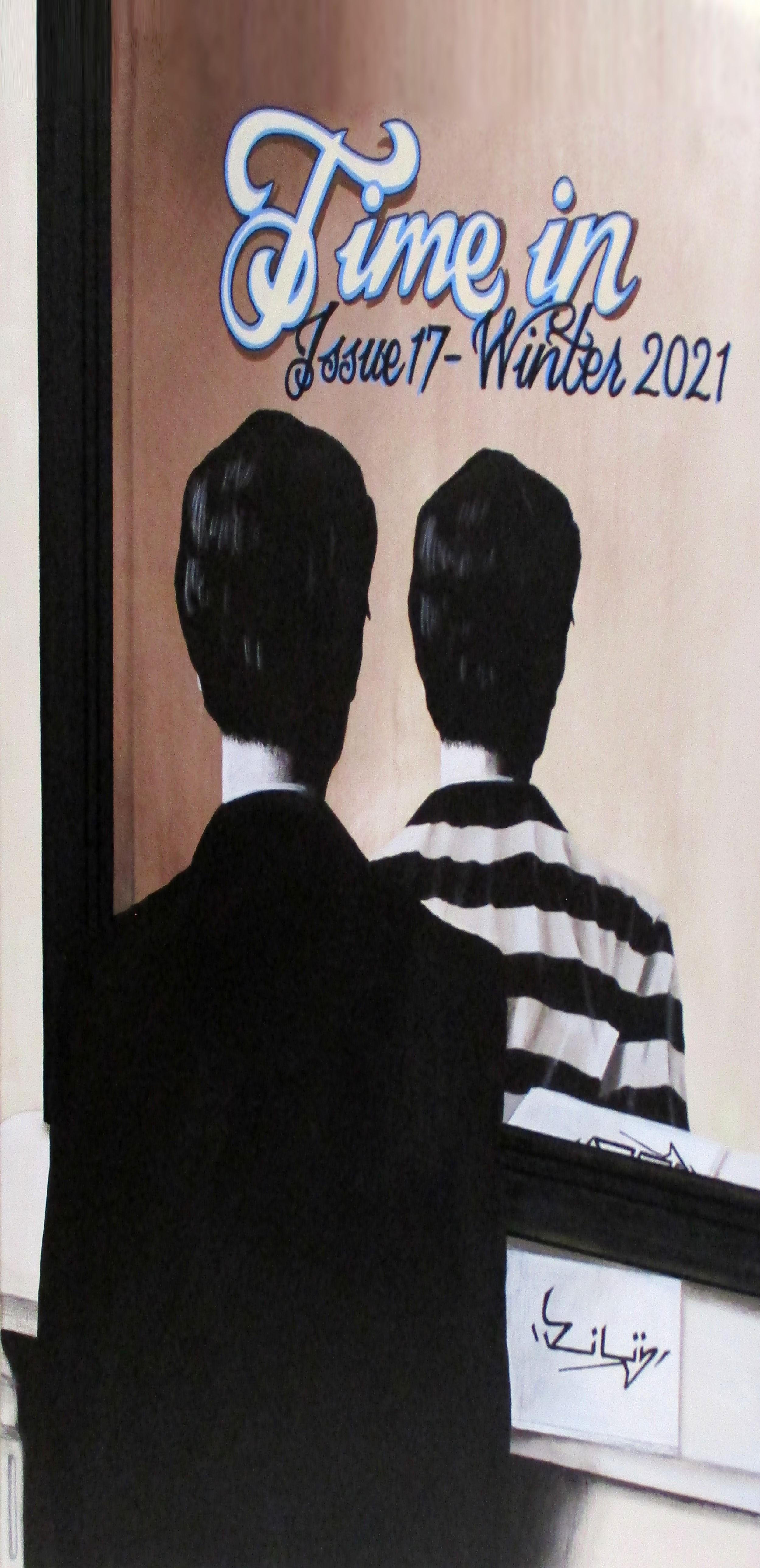
by
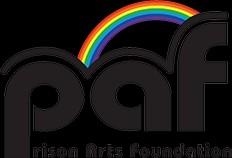




by



What a year of unexpected challenges 2021. A year when the world re-emerges to recover from the human struggle and economic desolation caused by the global pandemic. A year of vaccine rollout and forthcoming vaccine boosters. A year that began with lockdowns and ended with restrictions being lifted; yet there is still the apprehension that restrictions could be put in place again.
Is it any wonder that our artistic theme for Time InIssue 17 is based on surrealist art. The Time Inteam have asked the question: When what is real becomes ‘surreal’ where is our normal reality? Nobody could have predicted how the last two years were in actuality. As we endeavour to process and reflect all that happened, there is a feeling that the experience was surreal while at the same time it was reality, emotionally and physically, and a reality that invaded our dreams.
Our cover art created by the in-house artist, reflects the surrealist vision of the world when all is not always what it seems. Surrealism offers another way to look at reality, another way to reflect. It is not only another mode of expression but represents a significant movement in art, sculpture, literature, poetry, and movies. Surrealism is what we experience when we are immersed in a new world that distorts the normal one and this becomes the heightened reality.
Included in Issue 17 there is an overview of Prison Arts Foundation (PAF), the annual review, Listowel 2021 updates and Koestler Arts 2021 updates. The Magilligan writers group in keeping with previous years achieved awards and recognition for their work which is all the more deserving given the daily challenges and uncertainties. There are our regular Features: Poetry Pages, Nature Watch and Honest Jim’s column.
As we move into a new year there are many reasons to be hopeful. We have worked together through the pandemic and will continue to do

so. There have been many instances of selfless and humanitarian activities, and on a community level more support for local food sources, organic growers, and for shopping locally. The lessons we learn are a legacy that reflects adaptability, resourcefulness, and will save lives in the future.
Thank you to our Governor Gary Milling, to Prison Arts Foundation, patrons of TimeInmagazine, to the prison staff at Magilligan, Hydebank Wood College and NWRC staff, to the Art tutor Jayne and the Librarian Andrea for their support during the production of this issue, and last but by no means least, all inmates for their dedication, writings and creativity.
I wish to conclude by acknowledging Irish Poet, Brendan Kennelly who sadly passed away in October 2021. Kennelly was instrumental in introducing the Writers in Prison Awards to Listowel Writers Week in 1982. His work reflects Irish bardic tradition in its infinite variety which he transposed into the twentieth century. Kennelly spoke of affinities with poets such as seventeenth century, Aindrias Mac Craith: satire mixed with insight, self-mockery, learning and humanity. The Book of Judas(1991) and The Man Made of Rain(1998) illustrate his variety of voices: poetry as lyric, epic and story. Kennelly best represents our hopes for 2022:
‘Though we live in a world that dreams of ending that always seems about to give in something that will not acknowledge conclusion insists that we forever begin.
Pamela Mary Brown
Writer-
HMP Magilligan
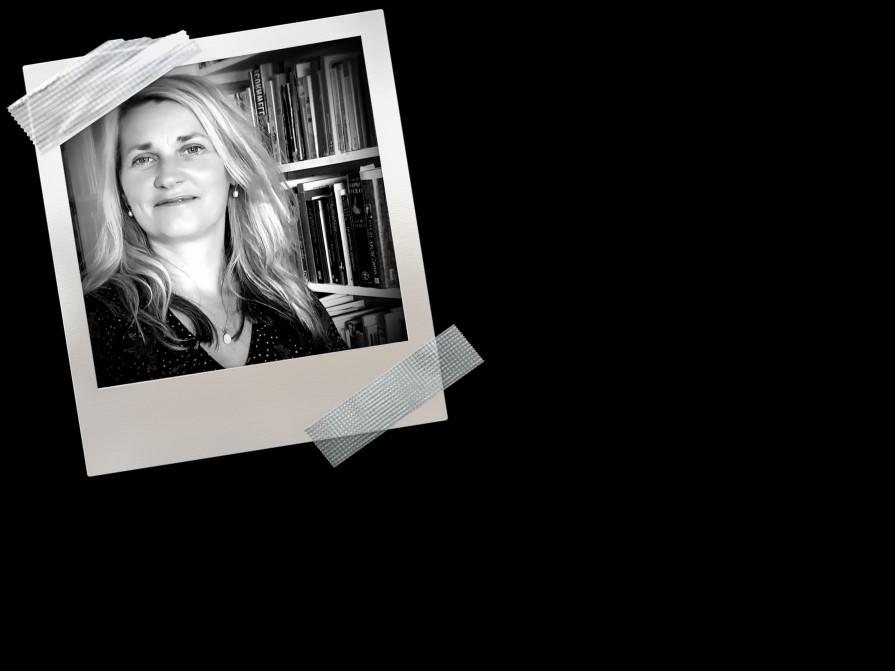
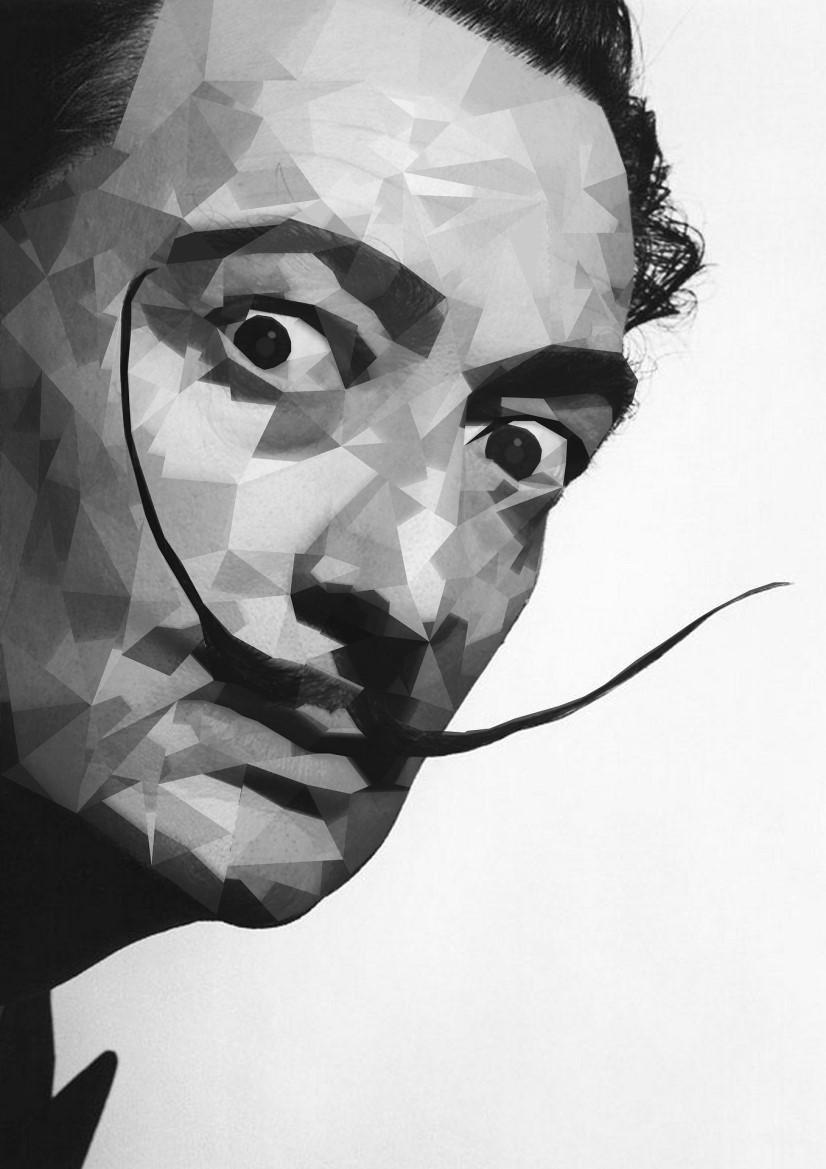


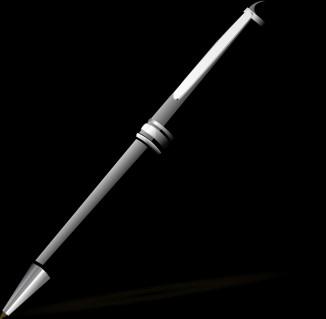


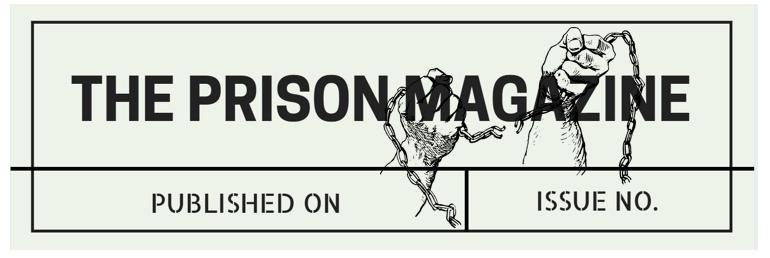


It’s so good to get out and about after all the long months stuck on the landing, so good to be sat here typing for the magazine again and it got me thinking - I wonder how long the ‘jail magazine’ has been going and how many there are, what the purpose is, etc. I began by researching along with the editor to find out the answers to the questions and was pleasantly surprised by the outcomes.
Overseas first, and in America a recent archive project shows the prison magazine has been going as far back as 1800! In America they have only 25 in print regularly which surprised me, after all the U.S.A. is the most incarcerated country on the planet and seems to have a prison every square mile -(have you ever seen the prisons in city centres like tower blocks!). Although typical American titles struck me, like the brilliantly named ‘Red hot rag with a pep’, a prison newspaper started way back in 1915 at Wyoming state penitentiary.
Most American publications I saw work hard to reach outside audiences too and most of them will cost you money to get them (which seems a bit odd in prison to me), but since the 1800’s people in America have penned articles and organised hundreds of in-house publications of all shapes and sizes - and lifespans. Regardless of style, they all cover similar ground like prison programmes, locals of interest, parole and education, all with the same aims to entertain and enlighten the readers. Some problems have arisen in the past with censorship and the problems of a prison editor can be challenging, as one publication wrote: ‘How shall we go about our job of convincing the reader that con-

victs still belong to the human race? How can we put our finger on the glaring flaws in today’s prison systems without official disapproval and alienating more readers than it wins.’ So it seems that some of these publications take a more serious outlook than our own magazine, which provides a broad range of content rather than specifically shining a light on the more serious issues of being ‘locked up’.
Back home now, and I have researched just how many magazines (or newspapers) there are in regular print in prisons and it’s not a lot, a handful in England, one of particular note in Scotland and only one Irish publication although I would say there are a lot more of in-house publications we never came across on our quest due to them being just that, ‘in-house’!
Inside Times is a newspaper that seems to have a far reach and must have a large team behind it, after all it is a monthly publication. The newspaper seems to deal a lot on the legal issues of prison life and seems to gravitate towards the English system. I have seen other publications like ‘Jail Mail’, ‘Voice of the Ville’ (Pentonville), Con-Verse and the ‘The View’ in England, The View is an interesting one, as it is the only one dedicated to women in the justice system or as their logo says ‘for women with conviction’!

In Scotland there is ‘Gallery’ which is a magazine containing information for prisoners and their families produced 4 times a year by the Scottish Prison Service. In Ireland the only thing I could find was the ‘ICPO’ which is the Irish Council for Prisoners Overseas and although isn’t a jail magazine per se, still is a publication, and is run by the Irish chaplaincy - make of that what you will… I also discovered that some people have moved on from jail publications to becoming outside editors, journalists and authors and most famously Jimmy Boyle from Scotland, has written several books, also Eric Allison from England who now works for the Guardian newspaper as their prisons correspondent having spent some 16 years in prison. It was very interesting to do this research just to find out the history and current state of the prison publications. Our magazine was founded in the summer of 2013 and we have managed 2 issues per year since then apart from obviously last year’s COVID19 disruption.
So, you may think that the prison magazine is a rarity, then all the more reason to value your copy of Time In as you never know who may want to add it to an archive project in the future. I hope you, the reader, thinks it is a positive magazine and one more thing to help us through our time in prison.
>>RMc
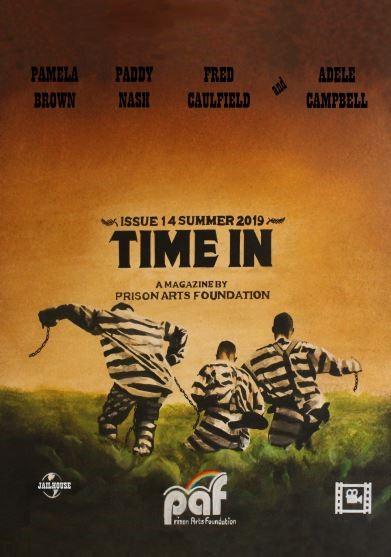
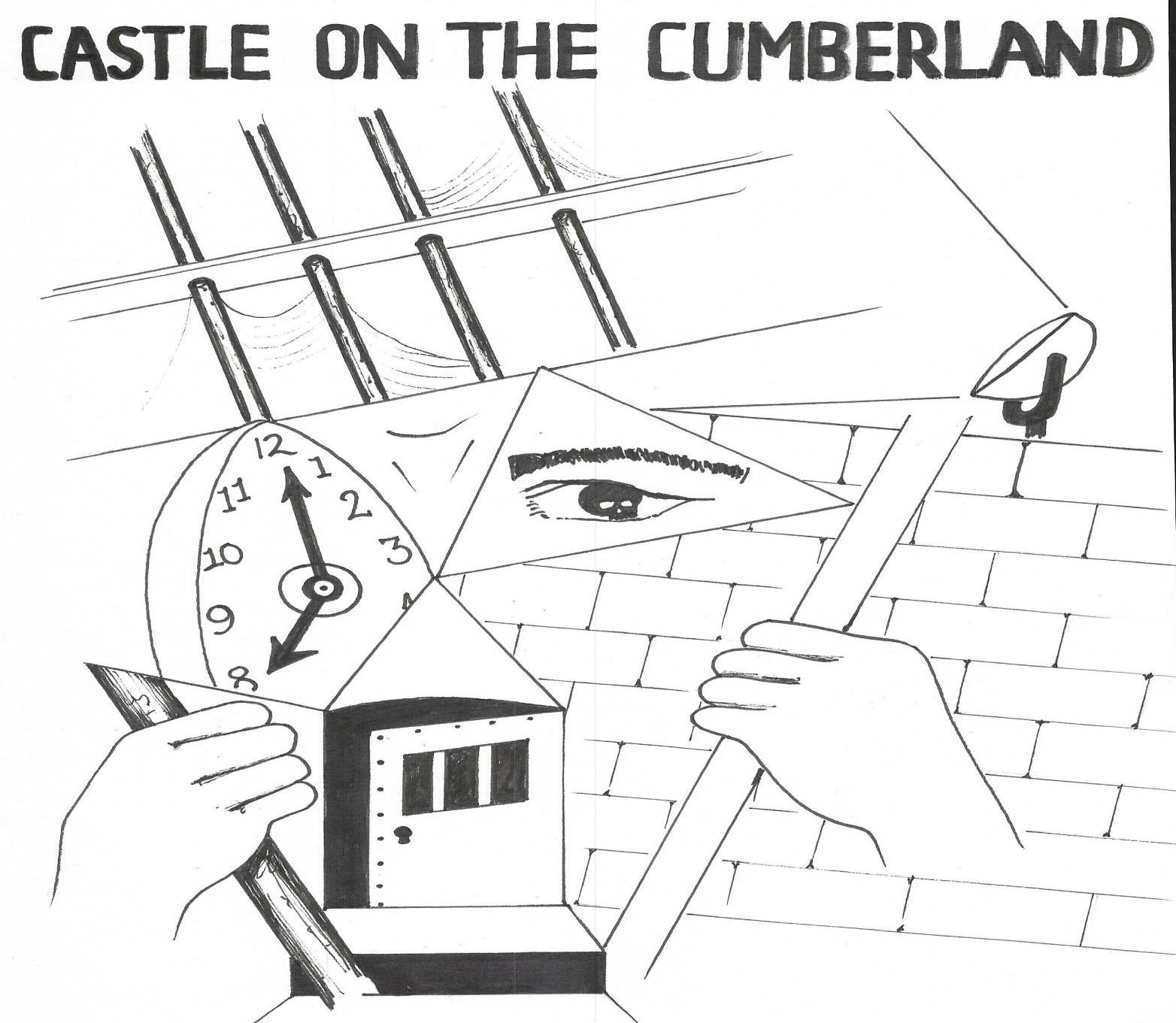

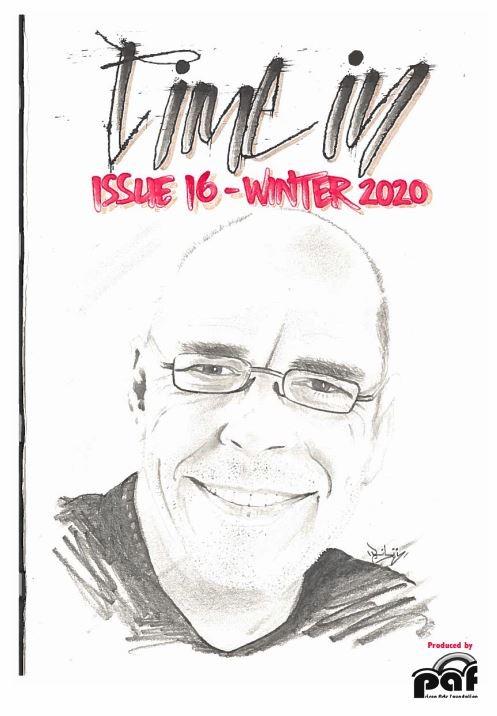
Two above: Our own Award Winning magazine folks!
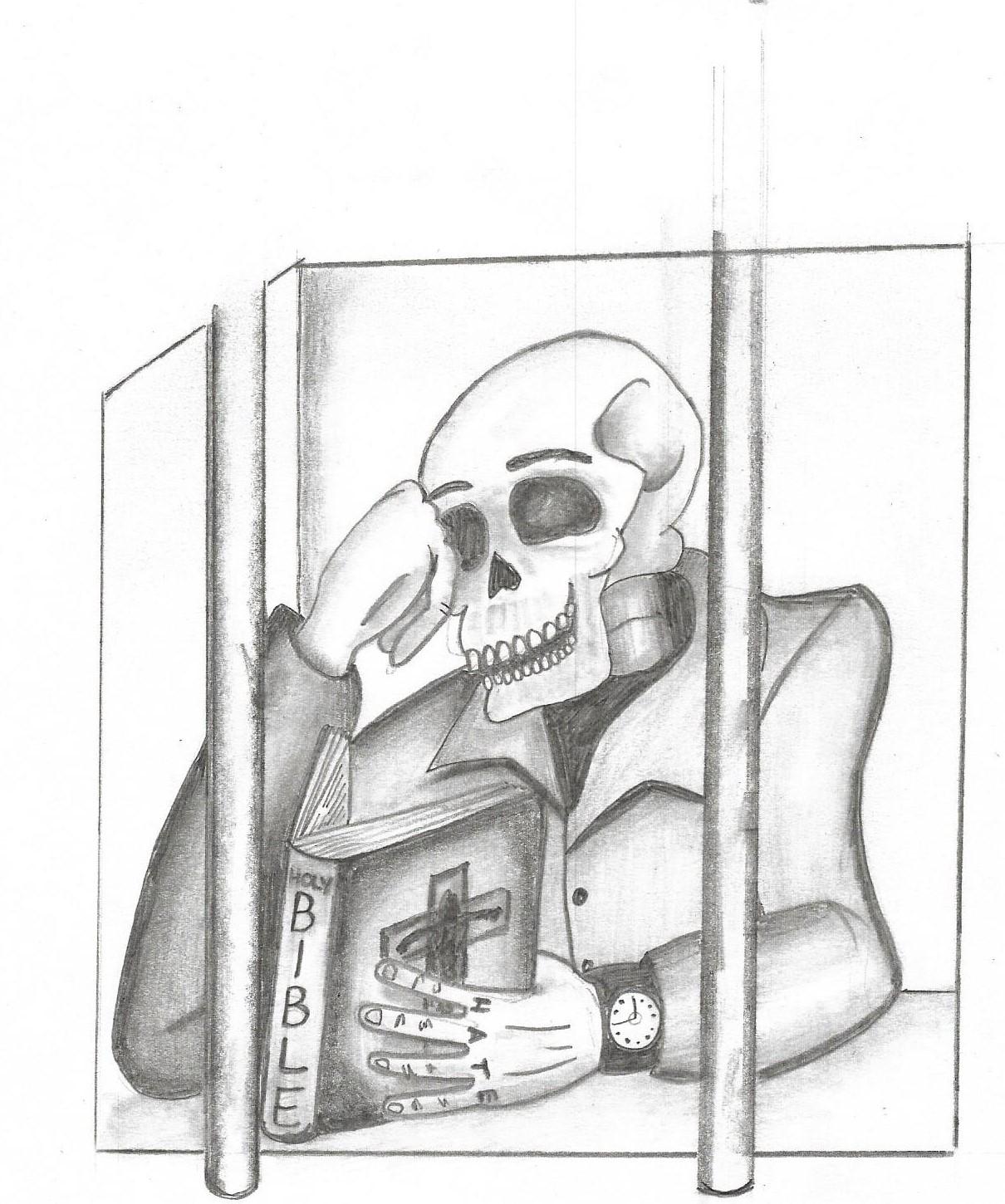



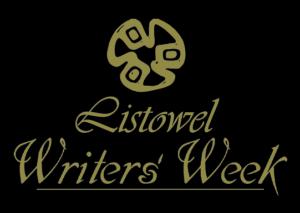
istowel Writers’ Week is Ireland’s longest established literary and arts festival. Leading writers, artists, and poets from across the world have celebrated their craft for 50 years in the heritage town in County Kerry. The first writer workshops were introduced in 1971 and the competitions soon followed. Listowel has many dimensions, including the awards granted to prisoners in the poetry and short story award categories.
A prison writer at HMP Magilligan, supported by Prison Arts Foundation and the North West Regional College, gained First Prize in the Short Story Advanced Category. Another achieved Third Prize in the Short Story Intermediate section, while a further Magilligan prison writer won Highly Commended Award in the Poetry Intermediate Category.
Second Prize winner in ‘Poetry Getting Started’ went to a female prisoner in Hydebank. Speaking about this award the Irish Prison Service Arts Officer, and competition co-ordinator, Tom Shortt said ‘this is a big achievement as there were a high number of entries in that category and I believe she is the first woman to win a prize in at least four years, and perhaps longer.’
Speaking on behalf of Hydebank, the SO in Ash House said, ‘it is a testimony to the support given to

the women by Prison Arts Foundation, and especially through the COVID-19 pandemic. The winning poem “Can You See Me?” is about mental health and reflects the current challenges.’
Executive Director at Prison Arts Foundation, Fred Caulfield said the competition was particularly significant this year, ‘We have all been profoundly impacted by the levels of isolation during the pandemic. There were concerns about how the virus would affect prisons and prisoners, and tighter restrictions have seen a reduction in purposeful activities. At Prison Arts Foundation we were willing to go the extra mile to continue engagement.’
Pamela Brown, Writer-in-Residence at Magilligan facilitated Creative Writing Workshops with female prisoners in Hydebank during lockdown, she commented that ‘the link with Listowel has been forged over many years. The awards are crucial to the writers at Magilligan, and it is fitting to share the achievement with Hydebank.’
Listowel is committed to creating ‘an environment in which literature can be appreciated by the widest possible audience.’ The Listowel Writing in Prisons Award is supported by Northern Ireland Prison Service, Irish Prison Service and Irish Council for Prisoners Overseas. >>PMB
Hello, can you see me, do you really know my name? Can you see the heartache, the fear that hides behind my name?
Hello, you think you know me, the prisoner I’ve become Do your whack, get off the smack, you’re not the only one.
Hello, can you hear me, when you shut that door at night Crying myself to sleep, giving up the fight.
Hello, good morning to you, it’s the same as yesterday Pretend to be stronger, more worried about what they’ll say.
Pretend your sweet, worrying about who you’ll meet Here mate, there’s my seat, just walk the other way.
Hello, I know you know me, sometimes you think I’m not here
Walking around without a concern or care
Hello, now you know me, I’m that voice inside your head I’m there when you wake, and still here when you go to bed.
Hello, don’t act like you don’t know me I’m still that voice inside your head. >>LW
Emulate, Emotive, Eloquence
Rhythm of rhyme, moments of time
Finding friends forever, Making minutes mine
Dreamt of days and dreaming, No more nightmare needing
Found fond fantasy Riding round reality
I fathom my final fear
Symphonic sleep, I’m sincere
Lastly life’s for living Love, life, and laughter
Three tremendous truths I’m imitating all…
First Place: Short Story Advanced
Dylan, Mr Steep is on the line.
Mr Steep?
Yes Dylan, Mr Steep is Mr Murphy’s attorney. He wants to settle.
Bonnie, I don’t really have time for this. What is the bottom line?
£300,000 for the loss of earnings, and £500,000 for agreement to the NDA. £200,000 for the child’s trust fund payable when thirty years old. £1 million bottom line. I’ve to meet my daughter on Wednesday. Make sure the money’s in the account. Can’t afford any slip ups. When conditions are met, I’ll meet with the Attorney General to discuss future protection from the courts.
But…
Bonnie, arrange a meeting, no more calls. I’m leaving the office. ***
Dylan Matthews was going places. The owner of a highly successful Hedge Fund account, he was used to risk. Now he was going to risk it all. Based in Dublin, he was a big fish in a small pond. Now, he wanted to be a small fish in a big pond. He wanted to swim with sharks and whales in seas and oceans instead of the claustrophobic fish tank he had outgrown. Dublin bored him. It wasn’t a city like London or New York. Dublin didn’t have an FTSE 100 or Dow Jones. He wanted to be where the action was.
Connor Fulton was Dylan Matthews’ number 2. Someone once told Connor the secret to success was to identify the person moving up through the ranks, grab onto his coat-tails and hang on for dear life. Dylan Matthews was Connor Fulton’s ticket to the big time.
Dylan had already made Connor a wealthy man, but Dylan wasn’t content with what he had, he always wanted more and that was fine with Connor. Dylan sights were now focused on America and he had convinced Connor of the American dream. continued...


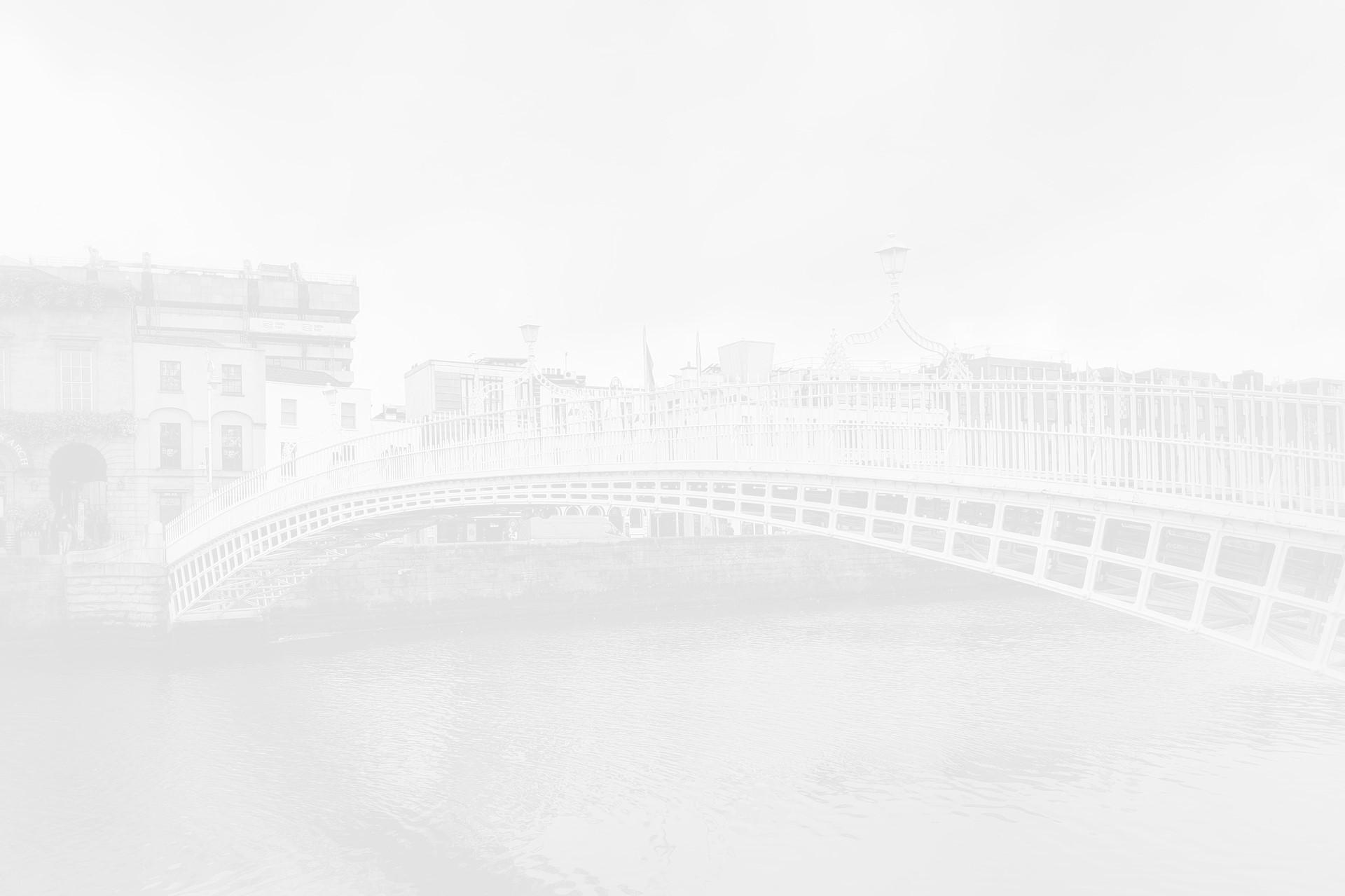
He had set up a meeting with Dick Doherty, CEO of Goldman Sachs. Dillon and Connor were going global.
The flight from Dublin International Airport to JFK lasted Five hours 40 minutes. The difference on arrival was stark. JFK was big. It was enormous. It was massive. Connor felt like an ant in a land of giants. There seemed to be more people in one terminal than there was in the whole of Dublin. All sorts of people, multitudes of black, white, Chinese, Indian, Jewish men with beards, women in Muslim dress. Dylan and Connor followed the rest of the passengers for what seemed like an eternity. Waiting patiently for the passengers, near to the exit, a line of men holding placards with surnames. Dylan scanned the line of men, spotted his name, and introduced himself. A man holding a sign with the name ‘Matthews’ emblazoned with black thick lettering replied, ‘I’m your limousine driver.’
Dylan, with Connor pushing a luggage trolley overflowing with suitcases, followed the driver to the terminal exit, both thinking the same thought, these Americans don’t mess about.
Once outside, they crossed a zebra crossing and entered a car park.
‘Is this the car?’ Dillon asked. ‘I thought you said you were a limousine driver.’
The driver looked at Dylan, quizzically pausing before he spoke. ‘A limousine is a taxicab Mr Matthews.’
Dylan looked embarrassed and Connor was trying hard to stifle his laugh.
Leaving JFK, they drove on to the New Jersey Turnpike and headed towards Newhaven. Looking out the window, Dylan couldn’t help but marvel at the fabled island of Manhattan, the famous New York skyline, the steel and glass megaliths, two towers towering above all others. Everywhere he looked Dylan was impressed. The New York skyline, the size of bridges, freeways four and five lanes wide, basketball courts filled with young men playing with reckless abandon. Everything seemed bigger, it seemed better and they hadn’t left the car, which was bigger and better than anything back home. Everything was more…, more..., colourful, more vibrant, more alive. He even felt bigger and...better.
Dylan’s thinking was interrupted by Conor, asking the driver if he was going the wrong way. He hadn’t noticed the island of Manhattan disappearing into the distance. The driver momentarily glanced into the rear-view mirror, catching Dylan’s eye.
‘We're not going to New York Mr Matthews. Mr Doherty told me to take you straight to him for dinner. You are to be guests for the weekend at his
home in Greenwich.’
‘Greenwich Village?’ Dylan inquired.
‘No, no Mr Matthews.’
‘Greenwich Connecticut.’
Greenwich, Connecticut was a small town almost 30 minutes from New York City. It was the most exclusive town with more median millionaires per square mile in the whole of the United States. Donald Trump, Tom Cruise, Mel Gibson all owned homes in Greenwich. Greenwich was a town that only one percent of the world’s population got to see. Houses were bought and sold for tens of millions of dollars. Most homes had the obligatory swimming pool. The top executives from finance, fashion, sports, advertising, acting and politics all resided in Greenwich. Residents owned speed boats, yachts, and private planes. The clothes shop stocked Armani, Gucci, Versace, and the car showrooms were full of Porsches, Ferraris, and Lamborghinis. Greenwich, for all intents and purposes, was heaven on earth.
Half an hour later, the limousine driver pulled off the Merritt Parkway at Exit 31 onto North Street in Greenwich. The driver pointed to a house owned by a media mogul who owned the Spanish language channel on cable TV. He slowed so the boys could look down a large driveway that had four large fountains that sprayed water high into the air. That guy owns his own satellite. Connor and Dylan were both flabbergasted and speechless. They never before had seen such opulence.
They turned into a huge gateway that had Stanwich Golf Club incorporated on the black wrought iron gates. Stanwich was the most exclusive Country Club in the most exclusive town in the world. The long driveway, shaded by tall ancient trees that seemed to block out the sun snaked through sand dunes and little ponds covered in green algae, obstacles in Stanwich’s famous golf course. They drove past tennis courts and a small car park and stopped at an impressive white and black clubhouse. Dick Doherty was waiting for them.
‘Welcome to America my Irish friends. I thought it best to come here first in case you got distracted and lost by the bright lights of the Big Apple. We will have some dinner, then go to my house where you can sleep. I’m sure you are jet lagged.’
Dick Doherty was in his 60s, grey with a tight military style haircut. Leading the way to the dining area, he stopped to introduce the boys to Pat Toomey, an American senator, and various other investment bankers and dignitaries.
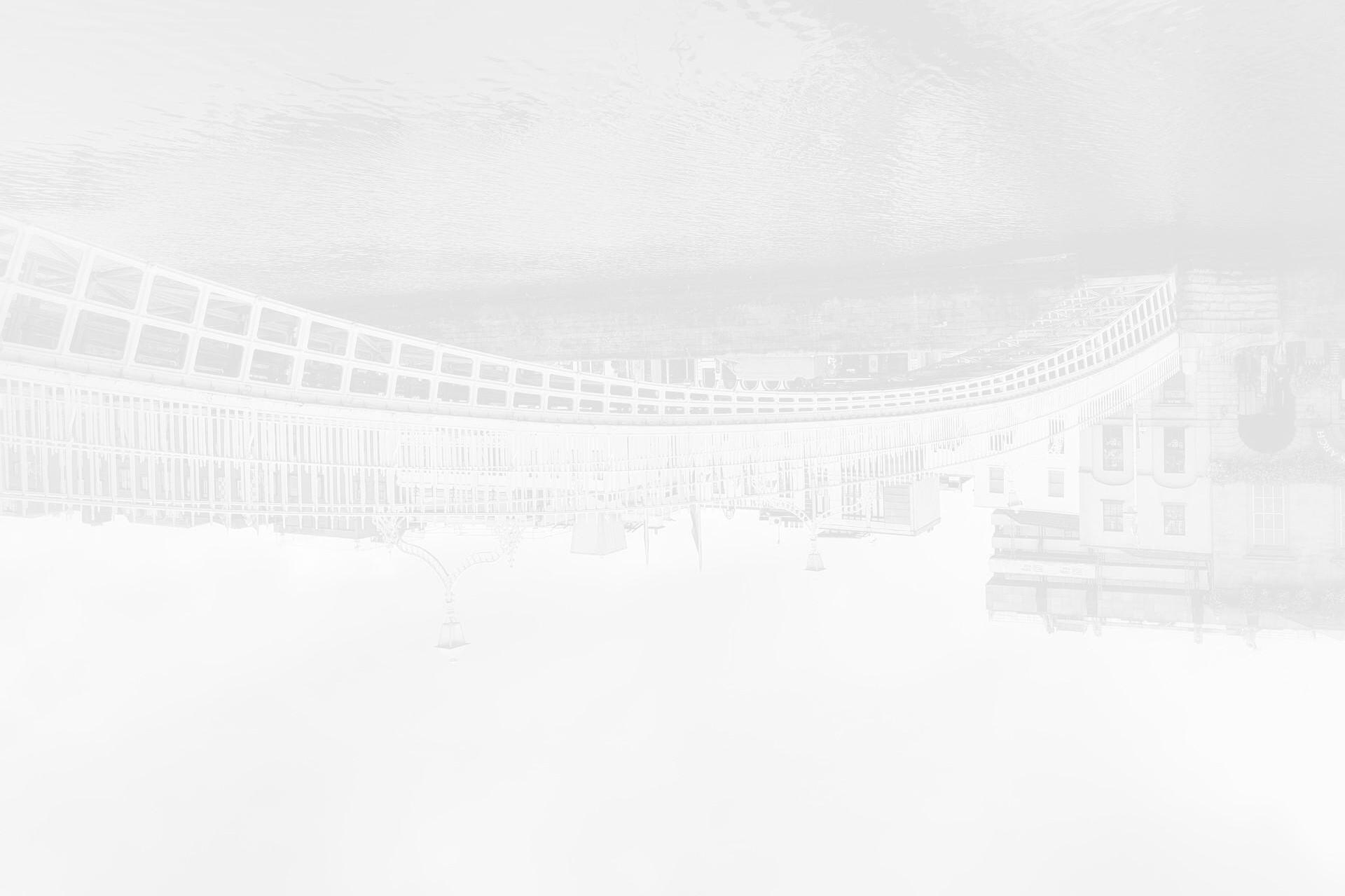

Arriving at the table, he sat down, lifted a napkin that was folded into a triangle, shook it, and placed it on his lap. He told the boys that Stanwich was the place to be on the 4th of July, America's Independence Day. All the food you can eat, loud brass bands and a firework display that was unequalled anywhere else on the planet.
Dylan tried to talk business but was immediately interrupted by Dick.
‘Dylan tonight, in fact this weekend, all talk of business is strictly prohibited. This is a strictly getting to know you exercise. Monday morning, when we arrive in the office in New York, that’s the time for business.’
Dick laid out the itinerary for the weekend. Tonight, they would finish the meal, go back to Dick’s house, get some sleep. Tomorrow, they would all go to Westchester County, to a little airstrip where Dick kept his four-seater plane and take them on a flight to Rhode Island.
4x100 metre relay, an unbeaten time from the 1970s. Dylan noticed the pride on his face, like an old soldier regaling new recruits about the glory of his youth.
The terrace of the burger bar was a raised area that looked out over the entire complex. The club was on the coast, and waves from Long Island Sound crashing against the rocks that separated Rocky Point from the cascading sea. A platform at the far end held a high diving board that provided kids the opportunity to dive into the ocean. Bikini clad ladies and gentlemen with Hawaiian style shorts straddled the perimeter sunbathing on towels and sun loungers.

...darkness slowly crept upon them...
After an enjoyable day flying, Dick had arranged a cookout at Rocky Point Swimming Club. They were to meet Dick’s wife and family for a nice relaxing evening before a week of intense negotiations involving their future business plans. When they arrived at Rocky Point, Dylan couldn’t help but notice the cars in the gravelly car park.

The club had two saltwater swimming pools. The main Olympic size pool had two diving boards with steps located at the deep end. The side near to the burger bar had lanes roped off for swimmers who wanted to swim laps. The far side had a basketball net where teams of teenagers were shooting hoops. A paddling pool at right angles to the main pool, was inhabited by mothers walking hand in hand with their children.

Amongst the lavish expanse of expensive cars, Dylan realised his BMW five series would look out of place for not being exclusive enough.
Dylan and Connor followed Dick through a little entrance at the end of the carpark. They waited while Dick exchanged pleasantries with the attendant who sat in what looked like a little cloakroom. Dick signed his name into the register and took a key for the individual changing cubicles which were located to the left of the entrance.
Once inside, three steps led to a little burger bar with a seating area containing aluminium tables, sunshade umbrellas and shiny silvery seats. Table tennis and pool tables occupied a small makeshift wooden room, painted white. The burger bar had a noticeboard that documented the names of the fastest swimmers with their record winning times from Rocky Point’s annual swim meets. Dick excitedly pointed to his name, holding the record for the
Dick led Dylan and Connor to an area beside the paddling pool. Dick’s wife and children were seated at one of the many picnic tables dotted around the sand, beside the pool. Dick’s son had commandeered a barbecue and was presiding over a feast of swordfish, king prawns and corn on the cob. A cooler with ice-cold beer swimming in an ocean of melted ice complemented the meal.
As darkness slowly crept upon them, a game of touch football, a contact version of American football was instigated. Most of the males’ present played, while the wives gossiped among themselves, cheering every score. Rocky Point was heaven on earth.
Dylan and Connor, when the game was over, sat down, opened two beers from the cooler and silently listened to the soothing sea water wistfully lapping against the rocks. It had been quite a weekend. They didn’t want it to stop. They both believed their world was going to change.
The next day, September 11th, 2001 their world did change, The world changed for everyone. The world changed forever. >>SA


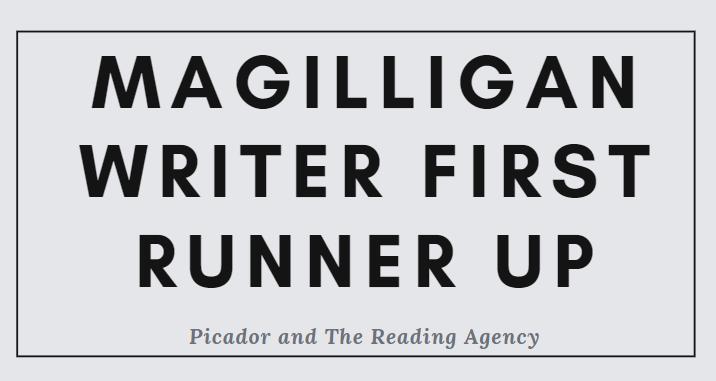
Aprison writer based at HMP Magilligan, and supported by Prison Arts Foundation (PAF) and the North West Regional College (NWRC) was the first runner up in a 500-word writing challenge competition. The competition was run by publisher Picador and the national charity The Reading Agency. Submissions were judged by American crime writer, Ryan Gattis and his editor, Kris Doyle. Gattis is the PEN America Prison Writing Mentor and gave the prompt-line for the story competition: ‘A man gets off a bus, stumbles, looks over and sees a woman, smiling.’
PAF Writer-in-Residence, Pamela Brown said on hearing the results of the Fiction Writing Competition: ‘It’s been difficult not having face-to-face classes, however a competition such as the 500word challenge by The Reading Agency, or The Listowel Prison Writing competition, and the Koestler Arts Awards, help us to continue the work for prisoners towards their achieving standards in writing, and providing very important outlets for their work.’
The prison writer winner received their secondplace prize – a letter from Ryan Gattis and his editor with feedback on the story.

It was up to the individual writer to decide what happened next. The Magilligan writer’s story was written in the gothic tradition, and was later recorded by an ambassador for The Reading Agency and shared during the Writing on the Wall Festival in May 2021.
Offering advice to entrants Gattis, said ‘Writers of fiction show us what they think is important about being human through the stories they tell. And when we read them, we inhabit the lives of these characters. We see other choices, worldviews, and outcomes beyond our own.’
Speaking about the achievement, PAF’s Executive Director, Fred Caulfield commented: ‘This is yet again a tremendous accomplishment by the writers’ group at Magilligan, and not least at this difficult time during the challenges of working in a prison during a pandemic. It further demonstrates the importance of meeting these challenges and continuing to engage with prisoners and the provision of positive activities.’

Commenting on the story Gattis said, ‘What caught my attention initially was your decision to take the woman from the prompt as your story focus rather than the man. It was one of the few entries to do that, and really stood out as a result. Well done. The unexpected is always useful in storytelling, and traveling with Carmen to Knockbrook (what a great name for an institution!) felt well-paced given the constraints of the prompt, as well as a successful piece of genre fiction.’
Gattis further added, ‘Ultimately, the most important thing to do is keep writing, and always trust your own sense of the story. Don’t let anyone derail you. Take it where you feel you need to take it, and make it the best it can be! ’
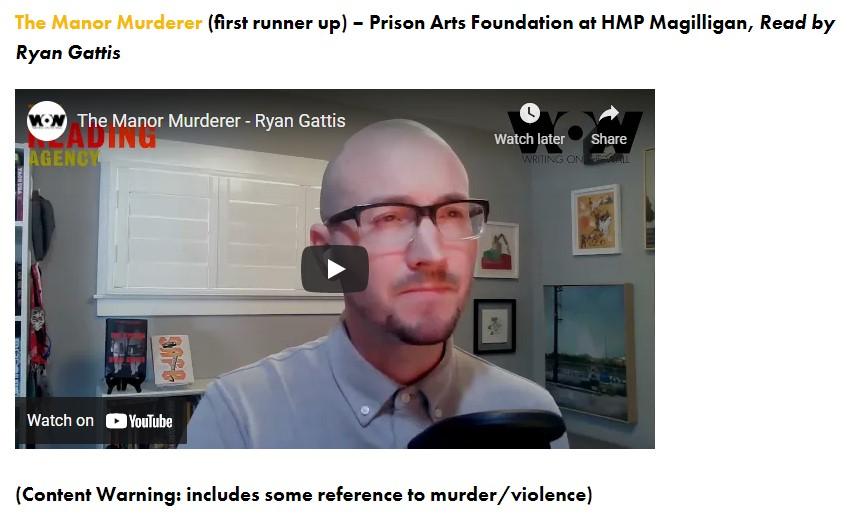



to get nervous as she got closer to the institution, and took this journey once a month for the last ten years. It never got any easier. The mental asylum was a creepy place and often Carmen thought about not going but she couldn’t abandon her friend AJ. The memory of what happened at The Manor was
That was the last thing Carmen ever saw. >>G O’D

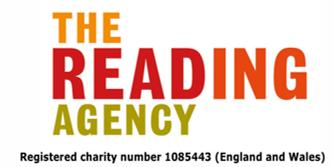




‘Thisautobiographycanteachusallsomethingaboutpatienceandforgiveness...’
This is my first time reviewing a book and what a book this is. It is an autobiography that tells the story of the Dalai Lama as well as the Chinese repression of Tibet. From his time in the Potala Palace, Chinese troops invading Lhasa, to his exile with the help of the CIA to Dharamsala. The Dalai Lama tells of crucifixions, disembowelling, dismemberment, beheadings, burnings, beatings, burying people alive, pulling people behind speeding horses, hanging people upside down, people being drowned in freezing cold water and people getting their tongues ripped out with meat hooks, just to name a few. This is just the start of treatment China imposed upon the Tibetan people. This book also informs you of the deforestation, monasteries being destroyed as well as their language and the theft of the Tibetan treasure. I read what he had to say on the subject of mass troop deployments, uranium mining and nuclear weaponry which I found shocking. Chairman Mao said that ‘political power comes from the barrel of a gun’ which is quite a statement from someone. This has been the Chinese mind set since the invasion. Over 1.3 million Tibetans have died in the struggle for their homeland. An interesting fact, Tibet makes up roughly 25% of China’s landmass, similar to the US loosing 1/3 of itself to Canada.
The Dalai Lama actually appreciates the ideals and commitments of the Chinese Communists but he is angered and baffled by their violence and deceit. The invasion and oppression of the Tibetan people, to me, is shocking and to be honest fills me with anger and sadness but is just an example of what goes on all over the world, in the past, to the present and it will happen in the future.
This autobiography can teach us all something about patience and forgiveness around the things we cannot control. It can also teach us empathy
Pfor the Tibetan struggles following the occupation of Tibet.
I found the Dalai Lamas dedication really inspiring in his early life with his daily routines consisting of 2 hours prayer and meditation at 4.30am. I cannot think of anything that could get me up at that time. This was followed by reading scriptures while eating his breakfast. He presents himself not as an enlightened being but rather as a novice monk doing his best to learn and to be as good a Buddhist as he can be according to his teachers and predecessors.
He is also very candid about Tibetan rituals and revealing scientific thoughts of the Oracles, spirit possession and even reincarnation. He clearly states that he does believe in the latter and writes about the procedures search teams used to discover reincarnated Lamas. In the chapter ‘Of Magic and Mystery’ the Oracles are described as having volcanic energy levels when dressed in their ceremonial robes and their headdresses and wearing jewellery that would weigh about 100 pounds. They would puff up and become reddened while wearing all this as they bowed down and thrashed swords about giving specific answers to daunting questions. Reincarnation and the possibility of identifying every rebirth is mentioned as a matter of fact in this chapter.
I think it is quite sad that the Dalai Lama speaks of dying before Tibetans gain their freedom back but I guess that is the world we live in. To think that this book was published in 1990, more than 30 years ago. I’m sure the Dalai Lama has learned so much more in this time, so I will look forward to reading what else is out there about this great man. Like many parts of the world it is hard to believe the suffering of so many goes on for so long. >>BT
rison Arts Foundation (PAF) would like to wish Director of Prisons Austin Treacy a long and happy retirement. The Learning and Skills building at Hydebank Wood College & Women’s Prison has been renamed ‘The Treacy Centre’ in recognition of his outstanding contribution to prisons over 43 years. Fred Caulfield, Executive Director PAF presented Austin with a piece of art painted by a female offender to mark his retirement in April 2021. Austin Treacy is considered an innovative leader with a passion for rehabilitation and intergenerational crime. He received the ‘Inspirational Leadership Award’ at the UK Civil Service Awards held in London in 2016. The award recognised his work to transform Hydebank Wood from a Young Offenders Centre into a secure college – a first anywhere in the UK or Ireland.



Whilst in prison a few years back I realised that prisoners almost never get an opportunity to see the stars. It's difficult to see the sky on the clearest of nights anyway due to the fact that we increasingly seemed to live in large towns or cities. Bright street lights and lights from the airports, train stations, factories, hospitals, etc., blot out the sky, ruining our night vision. But for people in prison, it's especially difficult to stargaze because of the amount of security lights illuminating the prison. There is often another building or high wall directly outside your cell window too. Your cell window is barred and you can't exactly stick your head out and crane your neck to stare skywards. So, people in prison rarely, if ever, get to see the stars.
Its several years later, and thankfully I'm no longer in prison. Yet it feels like I am. We're still in the middle of the biggest health catastrophe to hit the world for over a century. The COVID-19 pandemic has infected millions of people worldwide. Because of the risk of infection to anyone who's elderly or has an underlying health condition (I've got asthma and C.O.P.D.) we are advised to stay home and the government and senior medical advisors called it ‘cocooning’. It's basically internment without any criminal conviction. We’re under lockdown in our homes and only go out for food or urgent medicines, even then we must wear a face mask.
There's one small bonus though with plenty of time to do the things we like. Such as reading, writing or watching movies. Some people do a bit of gardening or decorate their homes. I've now my own self-contained ground floor council flat with a back garden overshadowed by a high wall, there's not a lot of ambient light around to spoil my view of the night sky, weather permitting of course.
The days may have been difficult over the summer months, but the nights have been enthralling. The number of times I've stood in the doorway overlooking my garden in the early hours just to stargaze. I turn off the lights in my flat when my neighbours’ flats are in darkness. I stand in the darkened doorway and gaze in wonder at the heavens. With just a mug of tea or maybe a cold beer for company, I admire the night sky for ages during the hot summer nights.
It's not just the stars that are on view either, on occasions I've seen what may have been the planet Venus; though sometimes Jupiter can be mistaken for Venus. And the number of times my garden has been illuminated by a full or almost full moon. Did you know the moon has no light whatsoever? What you actually see when the moon is full is sunlight reflecting off it. The next time you look at a bright moon in the night sky remember you're seeing sunlight shining on the moon, and it’s daytime on the moon.
During August (2020) the planet Mars was paraded across the night sky in close proximity to the moon. I correctly identified it while standing outside my patio door in the early morning darkness. Mars has a slight pinkish hue to it due to the rustic colour of the planet itself. The pinkish colour is from the colour of the planet surface which is entirely covered by red deserts and rust-coloured rocks and craters. The Martian sky is pink too.
My mind and my memories hark back to that sorrowful night in my prison cell all those years ago when I desperately wanted to see the stars but couldn't. I remember telling myself that one day I would see the stars again. Well now I can see them clearly, in all their majestic glory, whenever I like, clouds permitting of course. And they are truly a sight for insomniac eyes. Absolutely magnificent.
Honest Jim





leisure pursuits. Time and time again, positive and therapeutic impacts are the results of the PAF programmes for and by prisoners, their mental wellbeing, confidence building, and gateways to further engagement with education, and equally important the creation of artworks reflecting prisoners’ experiences. We face challenges in our work like many organisations and especially with COVID-19. However, our adaptability assists us in meeting unprecedented challenges.

‘We have two major areas of activity which are: our prison and
programmes “helps us [prisoners] to establish ourselves within the creative/exhibition community, instead of being linked to our offending pasts.” – PAF participant
Compiling PAF’s annual review 2020 Programme Co-ordinator Adele Campbell showed how PAF continue to deliver positive activities during the current challenging time.
‘The main objectives for the year continued to be promotion for public benefit, and the advancement of prisoner education and ex prisoners in Northern Ireland. Prisons in


‘PAF has facilitated arts opportunities in NI’s three adult prisons Maghaberry, Magilligan and Hydebank Wood College for almost 25 years. Our professional artists teach those serving custodial sentences through creative writing, visual art, ceramics and pottery, woodwork and music.
‘Like many organisations, PAF had to adapt in order to continue delivering arts based activities that provide a lifeline for prisoners’ well-being during the Covid-19 pandemic. In 2020/21 we continued to deliver an excellent standard of quality arts engagement via Zoom, emailing weekly resources and providing writing and art materials to prisoners. Our core year long Residency programme was funded by the Northern Ireland Prison Service and a further bespoke residency was supported by the Arts Council of Northern Ireland.
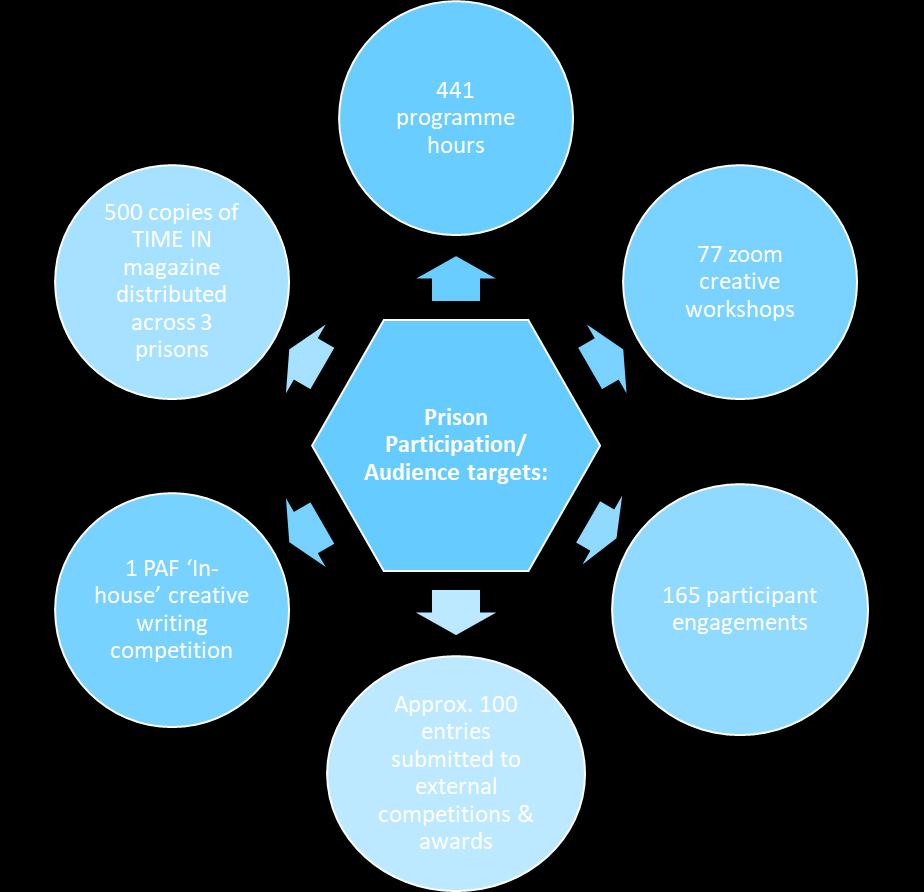
Writer Anthony Quinn created digital video workshops and a Creative-Writing Manual with reading material, writing tips and exercises.
The Support Hub reopened 2 days a week, with 7 volunteers including Community, PBNI Community Service and Burren House referrals.
Paddy Nash recorded a Zoom interview with American writer Jimmy Santiago Baca based in Albuquerque, New Mexico. The interview was attended by a PAF Creative Writing community based group.
Pamela Brown and Executive Director Fred Caulfield were interviewed by Dr Shelley Tracey at Com-
‘The criminal justice agenda is a central focus of the government’s drive to increase social inclusion. Our programmes in the community aim to work with some of Northern Ireland’s most vulnerable and marginalised groups at a pivotal point in their lives. PAF takes seriously the fact that too many people who have a history of being involved with the criminal justice system think the arts are not for them, and our ‘Inspiring Change in the Community’ programme aims to break down this preconception by making arts fully inclusive.
‘Thanks to funding from the National Lottery Community Fund, Department for Justice’s Assets Recovery Community scheme, Community Foundation NI, Halifax Foundation, Probation Board NI, Northern Bridge Humanities Research Council and Queen’s University Belfast we were able to deliver 3 community based projects.’
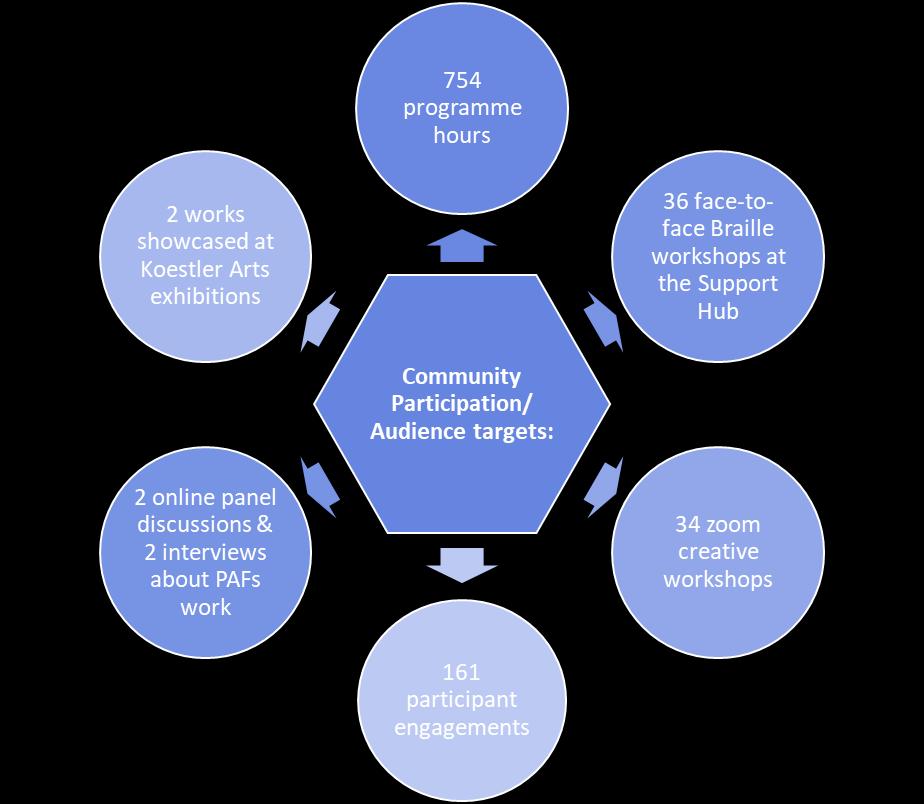
munity Arts Partnership about Prison Arts Foundation and changing lives through the arts.
Executive Director Fred Caulfield was a panellist with NIACRO’s CEO Olwyn Lyner at an online Real-World Challenge event, hosted by Queens University Belfast, and discourse on ‘How do we reduce the re-offending rates of young adults in NI whilst addressing the many PESE factors at play?’ Keynote speakers Austin Treacy, Director of Prisons Northern Ireland Prison Service.
Lucy Tuner and Pamela Brown facilitate 2 new creative art & writing residencies via Zoom with female students in Ash House Hydebank Wood College.




Stephen Greer has worked with the Prison Arts Foundation (PAF) for many years and after his release he opened his own successful Art Studio in Bangor, County Down. Stephen has come a long way with his art, having achieved so much over the last number of years. His work has been exhibited in Belfast, Dublin and Limerick. This demonstrates that if you are willing to put hard work, time and dedication into something you are passionate about you can achieve anything you want in life.
Hello Stephen, how are you keeping? Firstly, we would like to offer you our condolences. We heard that your Dad passed away recently. Sorry to hear about your loss.
We also heard that your Dad left you a very unusual inheritance? Yes, that’s right. He left me his collection of Bonsai trees.
How many Bonsai trees did you inherit from your Dad? 120, I was not expecting that.
What was the first thing that interested you in your Dad’s Bonsai trees? Nothing ha, I was never interested in them. It wasn't until he passed away and I had to start looking after them that I had any interest in them at all.

What does the art of Bonsai involve? I’m at a very early stage, so I am still learning about them. Last year I started working on my first tree. I started using wire to give the tree the shape I wanted. The main thing to do with the trees is watering them. The harder thing to do is pruning them, and watering them.
Is there an element of meditation to the art of Bonsai? Yes there is. You can lose hours working on them. You become absorbed by them.
Did your Dad have to do any specialised training to look after so many beautiful Bonsai trees? He was involved in a few Bonsai Groups and had loads and loads of books about how to keep them.
Why are the ceramic dishes that hold the Bonsai trees so shallow? I’m not sure, some are quite deep also. The pots can be all different shapes and sizes. Some pots can be quite expensive also.
How is your art studio doing, and did the COVID-19 pandemic affect your business much over the last year and a half, and if so, how? I recently got ill, so I haven't spent much time in the studio. I've only just started drawing again. Hopefully, I will get back down to the studio again soon.
COVID-19 affected my business quite a lot, people stopped buying art, due to other concerns and priorities, issues about losing their jobs, etc. Hopefully things get back to normal soon. I'd love to get a job teaching art in the prison. To try and help someone the way Alison Wilson and PAF helped me. That's my goal anyways. >>CM
Note: All photographs © and courtesy of StephenGreer
Bonsai tree plants are the product of years of attention and hard work, representing simplicity, beauty, and balance.
The trees symbolize a union between nature and art, and are considered living sculptures.
Bonsai tree plants that look old are considered more beautiful because in bonsai the tree plants aging process brings out more character in the tree’s appearance.
The Ficus retusa Linn in Italy is the oldest bonsai tree plant; it is over 1000 years old. It is kept in the Crespi Bonsai Museum as an example of what can be achieved over a long time period. The height of this bonsai tree plant is 3 meters and 3 meters wide.
At an International Bonsai Convention in Takamatsu, Japan the most expensive bonsai tree plant ever sold was $1.3 million. The bonsai tree plant was 300 years old. There are many other valuable bonsai tree plants but no one wants to sell at any cost which effectively makes them priceless.
The largest bonsai tree plant is the Imperial-class. An eight-handed bonsai tree plant up to 80″ tall.
Traditionalists say that the bonsai tree plant make a miniature representation of nature.
It is possible to make bonsai tree plants from any tree or shrub and bonsai tree plants produce fruit.
A misconception is that the fruit will be small in size but this is not true because of the tree’s genetics; the fruit will be of normal size.
Source:5InterestingFactsAboutBonsaiTree Plants


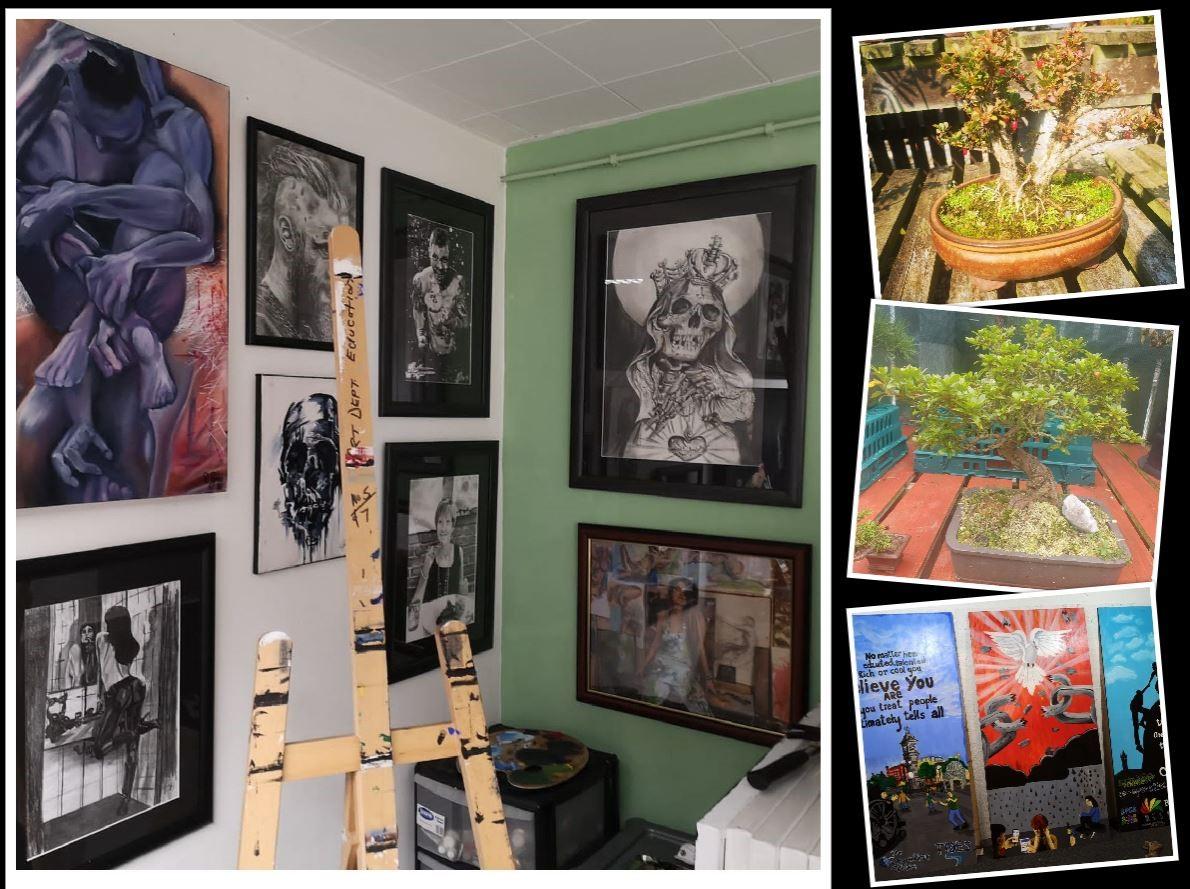




Delivering education programmes in prison proved challenging during lockdown with face-toface education largely being suspended, classes were taught via zoom and resources provided by tutors for in-cell study. In recent months tutors have returned to their classrooms albeit with lower numbers of students due to social distancing measures.
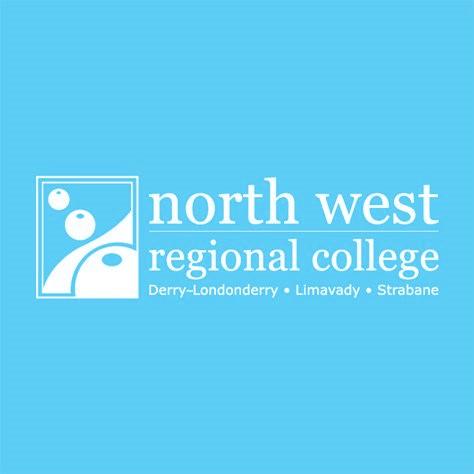
At HMP Magilligan a new head of Learning and Skills, John Graham has just taken up post. Here at Time In, we thought a few questions may allow him to introduce himself and highlight education and training opportunities available in Magilligan.
John, firstly congratulations on the new post. What inspired you to apply for this role within the prison environment?
I’ve been professionally teaching since 2007 and delivering the ICT System Support qualifications in Magilligan since 2015. It was rewarding to see learners in Magilligan achieving their qualifications and progressing to achieve at higher levels. I was encouraged by both my colleagues and learners within Magilligan to apply for the new role. I have direct experience of the challenges faced by learners and their tutors within a prison environment and feel that I can add value and use my experience to help plan for the future improvement of our learning and

skills provision.
What are you going to do to encourage prisoners to get educated and motivated?
What are the benefits for you, the learner? Speaking from personal experience, gaining new skills provides a sense of achievement. Many of the vocational skills that can be gained here are skills that can be used to gain employment, to forge your own path via self-employment, or to simply boost what you can do for yourself around the home e.g. painting and decorating.
Essential Skills boosts confidence with things such as filling in forms, for everyday living and with helping family with homework. They also can get rid of the stigma, or the need to hide the fact that your English and Maths may need to be improved. Remember the skills relating to English or Maths, as well as improved confidence, come with practice.
Will you provide more hands-on classes with more ‘tools’ on offer such as life skills, cookery, microchip soldering, even higher-level qualifications? Some of these courses you mention already exist via other NIPS partners, such as NIACRO, and higher-level qualifications are available via the Open University. Certainly, I am keen to hear feedback from prisoners and will continuously review what can be offered within budget and availability of resources.
Many prisoners believe that for rehabilitation to work, paid jobs should be available to inmates who are serious about change. This can help prepare prisoners for release, pay for accommodation, starting up money for essentials, even start-up costs for self-employment. Is there any way this could be implemented as part of education? This would be a decision for NIPS. Any opportunities for paid work that may arise within the prison should be discussed with your sentence manager. Currently the inmates that progress to Foyleview have the pre -release opportunities for employment that you describe. I look forward to working with partners in NIPS and external agencies to see what else can be incorporated within our programmes alongside the existing Employability Skills courses that are available at Magilligan.

acknowledge such an undertaking would require huge investment by NIPS. It is believed that the benefits of improved access to digital technology in prison include: Individuals digitally skilled, literate, and better prepared for release. And supporting the industrial strategy by addressing the nationwide skills shortage in technology-related roles. Increased access to educational opportunities for prisoners during evenings and weekends, and in-cell learning.
What changes would you like to implement in education to give inmates a better chance of success on leaving prison? I believe the best chance of success is linked to gaining employment. The one thing that improves employment prospects is having achieved both your Literacy and Numeracy qualifications at level 2 (same level as GCSE Grade C). Inmates without these qualifications will be encouraged to engage in Essentials Skills classes. This will not take too much time out each week from attending any vocational skills training you are completing. In fact, your vocational tutor will be encouraging you to attend these classes. Achieving these qualifications at level 2 can open up other opportunities, such as access to enhanced programmes, as well as access to NIPS funding for higher level qualifications through the Open University.
What inspiration do you take from other prisons around the world, education-wise that you could or would like to implement in Magilligan so we can catch up with more modern approaches to education in prison? Taking inspiration from Belgium’s ‘Prison Cloud’ and Denmark’s ‘Internet Cafes’, ideally what I would hope to see implemented is increased access to digital technology. Perhaps the use of secure intranet within the prison’s cells to provide access to e-learning with access to pre-approved websites for online reading materials and educational video content. I have to
Could there be more detailed courses for people who are looking at self-employment e.g., detailed business plans, accounts management, rotas (using spreadsheets), networking, etc.? Some of these courses you mention already exist via other NIPS partners, such as NIACRO. Other areas, such as using spreadsheets are part of the Essential Skills ICT Level 1 and 2 qualifications. Networking Principles are covered in the Level 2 ICT Systems Support qualification and again, in more depth in the Level 3 ICT Systems and Principles course.
Could there be an electrical course introduced which they have in Maghaberry? The course you are referring to is delivered in Maghaberry via NIPS delivery partnership with Extern. I am keen to hear feedback from prisoners and will continuously review what can be offered within budget and resource availability to see how our curriculum can be further enhanced.
Could a cookery class be introduced? Teaching prisoners how to cook basic food and meals that are cost effective and nutritious for themselves and for their children. The PDU already have such a programme available called “Cook-it”. NWRC also offer the Level 2 Award in the Principles of Nutrition which allows prisoners to learn and develop their knowledge in nutrition and to gain a better understanding of nutrition and its benefits. I welcome feedback from prisoners and will continuously review what can be offered.
Could competitions be introduced into education to motivate and incentivise inmates into getting excited about learning? They could and I welcome suggestions. >>JE



The NWRC at Magilligan offer Qualifications in many areas of study, including accreditations at Entry Level, Level 1, Level 2 and Level 3. For more information please request a course handbook:
ART & DESIGN
BARBERING CARPENTRY
CREATIVE WRITING
EMPLOYABILITY SKILLS
ENGLISH (LITERACY ESSENTIAL SKILLS)
ESOL (ENGLISH FOR SPEAKERS OF OHER LANGUAGES)
FOOD SAFETY & NUTRITION
HEALTH AND SAFETY
HORTICULTURE
ICT SYSTEMS SUPPORT
ICT (ICT ESSENTIAL SKILLS)
JOINERY
MATHS (NUMERACY ESSENTIAL SKILLS)
PAINTING AND DECORATING
PLASTERING
TILING
WELDING


Support services are available for all in custody and their families. Speak to your Class Officer or the Family Support team for further information.

and alcohol abuse.
AD:EPT work across the 3 prisons in NI and have vast experience helping people in custody. All AD:EPT workers are trained professionals who offer a sensitive and confidential service.
If you would like help and support with a drug or alcohol problem there are several ways you can contact AD:EPT :
● Ask an officer on the landing to arrange an appointment.
● Ask your medical officer or probation officer to refer you or at your resettlement meeting.
● Ask at your Induction/Core Harm reduction meeting.

The spiritual needs of inmates are catered for in prison as well as on the outside. The main denominations have chaplaincies but others are also accommodated. You can contact a chaplain by asking your class officer to phone the office and leave a message. You can also have a request put on the computer system or you may speak to a chaplain at the Sunday Service and make appropriate arrangements.
Roman Catholic, Combined and Free Presbyterian services are held on Saturdays and Sundays. Check notice boards on wings for relevant times.
Foyleview services are on Wednesday (Free Presbyterian) and Thursday (Roman Catholic and Combined) from 4 – 4.30 p.m.

When someone dies we can feel a host of emotions including being abandoned, angry, guilty, shocked and sad. The death could have happened recently or a long time ago. Talking about how you feel when someone has died can help. Cruse Bereavement Care are volunteers from the community and do not work for the prison service. Cruse will offer you a weekly hourlong session with a volunteer.
When you meet you can talk as much or as little as you want and the volunteer will listen and provide support.
All you need to do is to fill in a Cruse referral form, or ask your Class officer to contact Cruse. An appointment will be made to do an assessment, after which you will be allocated a volunteer who will see you each week on the same day.
If someone close to you has died, you can feel sad or upset. Cruse Bereavement Care is here to help.
Shannon Trust is a reading programme specifically designed for adults who struggle with reading.
It’s a peer led, confidential, one to one programme that can be worked through at the pace of the learner in short bursts of 20 minutes a session, with completion certificates earned at the end of each manual.

If you are interested in improving your reading or becoming a Mentor, there are several ways to get involved in the programme:
● Ask an officer on the landing to arrange an appointment.
● Ask an existing Shannon Trust Mentor or Learner to refer you.
● Fill in a sign up sheet available on the wings.
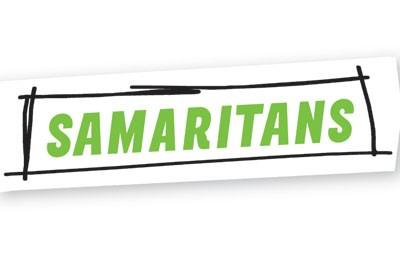
Available 24 hours a day, 7 days a week, to offer support to inmates who are having a difficult time. The service is available to everyone regardless of their age, ethnicity, religion, or sexual orientation. To make a request ask an officer on the landing. The scheme is independent of the prison authorities and completely CONFIDENTIAL.




When the first Koestler Awards began in 1962 there were approximately 200 entries. Author and activist, Arthur Koestler aspired to set up a yearly award scheme to appraise ‘creative work in the fields of literature, the arts or sciences by those physically confined’. The awards were assessed by leading experts from outside the prison system.
Fast forwards to 2021 and the Koestler Arts received almost 6,500 submissions from around 3,500 people in custody and in the community. Koestler Arts provide feedback to all entrants covering diverse abilities in visual art, design, writing and music.
Here at HMP Magilligan and indeed Maghaberry, Hydebank Wood College and Women’s Prison, the yearly awards provide a focal point for prisoners to engage with Prison Arts Foundation’s (PAF) programmes. The judges’ feedback proves invaluable, encouragement and validation, as well as giving focus for those prisoners who submit work the following year.
Preparing the work for submission during lockdown was challenging. Teaching Staff had less face-

to-face time with their students which meant the number of submissions to Koestler Arts were lower than previous years. Nevertheless, PAF artists, the support staff, North West Regional College (NWRC) and prison staff made a collaborative effort to ensure that work was prepared and submitted to meet the guidelines. There were 52 award categories in total, as well as the Themed Category ‘Together’.
18 Awards were given to inmates at HMP Magilligan including 16 for Creative Writing: both are PAF and NWRC supported projects. 12 awards to Hydebank Wood College and Women’s Prison. HMP Maghaberry received a First-Time Entrant Award for a Captain Tom Portrait.
Highlights for the Creative Writing group include two poems selected for the South Bank Centre Exhibition as well as a poem by a female prisoner at Hydebank Wood College. The I and the We 2021 UK Exhibition curated by Camille Walala and Sarah Ihler-Meyer runs from 29 October – 5 December 2021. Two poems by writers at Magilligan were further selected for inclusion in the Koestler bi-annual poetry anthology: Voices
The Writers Group at Magilligan received: 1 Gold Award, 1 Bronze Award, 3 Under 25s Special Awards, 5 Highly Commended Awards and 6 Commended Awards with a further Silver Award granted to a prisoner for a Portrait plus a Commended Award for a painting by our regular Time In cover artist.
During lockdown the opportunity to provide Creative Writing via Zoom with women prisoners in Hydebank Wood College resulted in awards: a Judith Tannenbaum First Time Entrant Award, a Victoria Dickie Under 25s Special Award and 2 Commended Awards for poetry.
Prison Arts Community Mentoring project also gained a Highly Commended Award in the themed category ‘Together’ with an Ekphrastic anthology

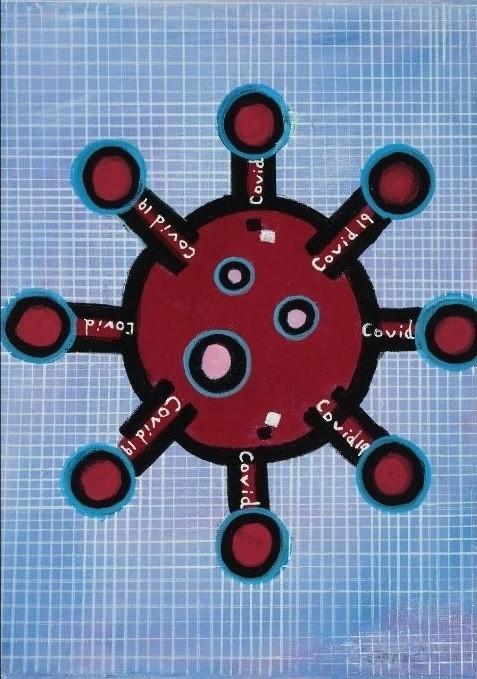
Above: Captain Tom HMP Maghaberry, Painting First-Time Entrant Award . The Virus Hydebank Wood College & Women's Prison, showcased at Koestler’s ‘Power: Freedom to Create’ exhibition, National Justice Museum Nottingham 2021
Hydebank Wood College and Women's Prison.
Poem selected for inclusion in the Koestler exhibition of 200 art works at South Bank Centre in London: ‘The I and the We’.
Beyond these grilles behind this door and walls within my view
collaboration Portrait of an Experience. PAF artists working in Craft and Painting categories, supporting prisoners in Hydebank Wood and Maghaberry gained Gold, Bronze first-time entrant and Commended Awards.
Each year entries are judged by over 100 experts from different fields. Over the years judges have included Grayson Perry, Antony Gormley, Turner Prize-winning artist Jeremy Deller, Poet Carol Ann Duffy, representatives from the Victoria & Albert Museum, the British Council, the National Theatre, the British Film Institute, Louise Galvin, Speech Debelle, Louis Theroux and Hot Chip.
Koestler Awards 2022 entry forms will soon be available, and will be accepting new entries from January until the closing date on 7 April.
HMP Magilligan Poem selected from over 6,400 entries for inclusion in the Koestler exhibition of 200 art works at South Bank Centre in London: ‘The I and the We’. Poems further selected for Koestler Vol. 3 biennial Poetry Anthology: Voices
I’ll not come back to jail
Simply because There are not enough hours in the day
Not enough days in the year
And not enough years in a lifetime. >>GO’D
As I sit alone in my prison cell Remembering back to bygone days I cast my mind back to reflect Saint Patrick’s Day when I was free
I’ve fought my demons and done my time ready to start anew.
I’ve used these bricks to build new walls and found something true
I’ll rise to freedom and find my voice well beyond this view.
>>KM
In a run-down bar on O’Connell Street
Me and my girl supped Guinness
Frothy smiling moustaches listening
To a band singing My Lovely Horse
Outside sky electric blue
The sun dazzled bright yellow
People stretched as far as the eye could see
In the streets singing
No shouting or loud speeches
The people sang one song
Loud and proud over and over again
You’ll Never Walk Alone. >>SA


Family and friends of those lost to suicide often find it difficult to talk about their loss because of the deep sadness, sense of privacy and cultural taboos. There are few among us who have not been affected by the loss of a loved one, friend or colleague. Suicide occurs in all countries and in all cultures. For the survivors, the family and friends, there is immense suffering in terms of grief, guilt, plus a lifetime of unanswered questions. We at the Creative Writers Group in HMP Magilligan are profoundly touched that the following story gained a Koestler Art Award.
Stuart woke at 4 o'clock in the afternoon. He got out of bed and looked out the window. It was raining, typical he thought and lay back down on the single bed. Should he get dressed? There was no point. He wasn’t doing anything today.
Stuart was hung over with a banging headache. The evening before he was at his friend Bill’s house party. Bill’s parents were away for the weekend. It was good craic, as far as he could remember, but he blanked out halfway through the night. Stuart and his friends started drinking at 6 o'clock the previous evening. They’d been snorting cocaine and popping ecstasy tablets, so today Stuart was on a serious come down. He definitely did not feel at his best. In fact, Stuart hadn't been his usual self at all recently.
In the past six months Stuart was experiencing low moods and diagnosed by his doctor with depression and anxiety. At first, he was happy enough with the diagnosis because it meant he was eligible for the ‘sick’, ESA Employment Support Allowance. His monthly income from the ‘bru’ increased from 230 to 500 pounds. Stuart never worked a day in his life.
‘Why should I have to work when the govern-

ment give me money for nothing.’ He said. The truth was he didn't have the motivation to get up and go to work.
Stuart now cursed himself for having depression. It affected him almost every day of the week, as did his anxiety which made the most remedial of tasks, like walking to the shops and starting conversations extremely difficult. Stuart’s doctor explained his depression and anxiety were due to drug and alcohol abuse. Stuart thought his doctor was wrong because when he took drugs or drank, he could actually function properly.
Finally, he got out of bed after an hour debating with himself. He decided to get dressed and call to his mum’s house. He found the t-shirt he was wearing the night before rolled up in the corner of the room. When he picked it up, he noticed drops of blood on it. For God’s sake, what the hell happened? Stuart flung the Adidas t-shirt into the washing basket and picked up his iPhone. He wanted to call Bill but noticed the screen was badly smashed.
‘Absolute nightmare,’ he said. His mum bought him the phone at Christmas, she was going to kill him.
Stuart pressed the on-button, half expecting the phone to completely breakdown but to his surprise the home-screen lit up with the battery at 5%. He hurriedly made the call. The phone Rang 7 times before Bill answered. Stuart was certain he wasn't going to pick up.
‘Hello,’ Stuart said.
‘Who's this?’ Bill asked.
‘It’s Stuart here.’
‘Oh right, I still haven't saved your number. What’s the craic?’

‘Just wondering what happened last night? Last thing I remember was us boys doing shots in the kitchen, at around 11 o'clock.’
‘Well you and John ended up fighting, and he decked you. After that you started crying your eyes out, saying you don't want to be here anymore, you feel like killing yourself and all of that.
So, I sent you home.’
‘No way, are you serious mate!’
‘Deadly mate. Couldn't have you crying on like that…’
Stuart was embarrassed, he’d humiliated himself. How could his so-called best mate send him home? He was clearly distressed. Stuart had mental breakdowns like this before when he was drunk, but he'd never done it in front of his friends. And now he'd made a fool of himself. His breakdowns usually happened when he went home, and his mother had to deal with him then. The first time she was sympathetic. They’d spent countless hours in the accident and emergency department of the local hospital, waiting to see the mental health team, who took what felt like forever. No matter how long they waited, or how much his mother protested, they wouldn't book him into the psychiatric wards. He couldn’t be treated for mental illness and suicidal tendencies because he was on drink and drugs. They would consider him for admittance if they he was off everything for at least a month.
Stuart was careful to keep this a secret from his friends but now they’d found out. He was worried about what they would think of him. His mother had also gotten sick and tired of his behaviour and unwillingness to stop taking drugs or drink. So, she threw him out of the house and he moved into a hostel two months ago. Since then the depression steadily grew worse. He now more than ever had suicide on his mind. The only way to escape these dark thoughts was smoking cannabis, drinking alcohol, or consuming drugs like ecstasy and cocaine. He tried diazepam a couple of times but the last time he took ‘blues’ he blanked out. He woke up three days later without the foggiest idea of what he’d done or where he’d been. The only thing Stuart was sure he had done was cut himself. There were twenty or so thin slices across his outer left forearm. That was six weeks ago. The first time Stuart selfharmed.
Stuart promised himself he’d never self-harm or take diazepam again. He'd managed not to do the latter but he self-harmed on other occasions, three times now if he counted last night. When he looked down at his arm he was disgusted and ashamed of
what he had done. He'd noticed the five cuts this time on his outer right forearm. The last scars had only faded. Hiding these new cuts was going to be a hassle. Stuart never told anyone about his selfharming problem, not even his mother. Luckily it was winter, so he would wear a jumper or a coat whenever he was in company.
Stuart left his bedroom to use the communal toilet. He went to the sink to wash his hands but got a shock when he looked in the mirror. He looked absolutely horrific. He had a black eye, that was actually purple and blue. His hair was standing up at the back of his head and there was black stuff and vomit on his face and chin.
‘For God’s sake,’ Stuart said. What would mum think if he called looking like this. He quickly cleaned his face, throwing water on it and patting the hair down. He went back to his room, got his jacket and walked down to the reception desk in the hostel. He was opening the main door when a voice called after him.
‘Stuart come here.’
Stuart stopped in his tracks and turned to see Larry, the manager of the hostel, sitting at the check in desk.
‘What is it Larry?’ Stuart asked.
‘I need you to sign this,’ Larry said with a sour expression on his face.
Stuart lifted the piece of paper and was surprised to see it was another warning. ‘What's this about? I didn't do anything,’ Stewart protested.
‘You were here last night, threatening staff and other residents, off your head on God knows what. Looks Stuart you're a nice kid when you're sober, but this is your final warning. Anymore incidents and you're out of here.’
‘I'm not signing that…’
‘It doesn't make a difference if you sign it or not, anymore crap and you're out the door.’
Stuart lifted the warning and went out the main entrance in an even worse mood. It was always one thing after the other. He never seemed to get any good news.
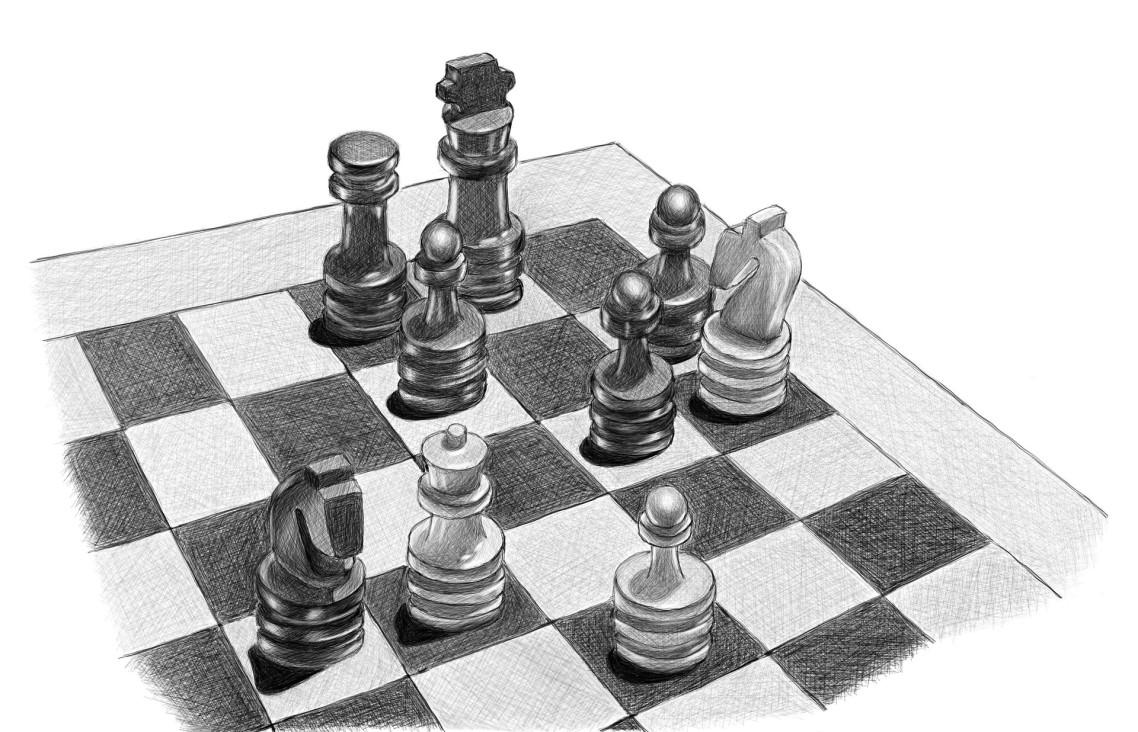
Stuart got halfway to his mother's house and the rain began to fall heavier. By the time he walked through the front door he was drenched.
‘Hello,’ Stuart called out.
‘Who is it?’ his mother replied.
‘It's me, Stuart,’ he said entering the living room. His mother was stretched on the two-seater sofa. watching the soaps on TV. Stuart’s little sister Daisy was on the floor playing on an iPad. When she saw Stuart, she jumped up and ran towards him.


Stuarty, look Mum, Stuarty’s home,’ Daisy shouted.
Stuart picked her up and swung her in the air, before putting her down with a big hug. Daisy was only four, so she didn't really understand why he wasn't living with them anymore. When he placed her on the ground, she grabbed his hand and pulled him towards her iPad.
‘I've got to show you this…’ Daisy said.
‘That'll have to wait Daisy. I need to speak to Stuart in the kitchen.’ Mum said.
Stuart knew what was coming.
‘Look at the absolute state of you. What happened to your eye?’ His mum said in a hushed but angry voice so Daisy couldn't overhear.
‘I was round at my mates,’ Stuart said before his mum cut him off.
‘What mates? I've already told you before they aren't your friends! They don't give a s*** about you. Look at the weight you've lost. What were you taking last night?’
‘Aww mum give over, I've not been here two minutes and already you're putting my head away.’
‘No son, it's the drugs doing that to you, not me. Have you had anything to eat today?’
‘No, I was going to see if you'd give me money to get….’
Stuart’s mum cut him off mid-sentence.
‘No son, I'm not giving you money, so you can go and buy drugs with it. I've told you before, I'll make you dinner every day, but I'm not giving you anymore money.’
‘Why not?’ Stuart asked, regretting it as soon as it came out of his mouth.
‘Why not? I'll tell you why not…because you're running about like a wee lost soul with no other purpose in life than drinking and taking drugs. That's why not!’
‘It's okay then, I'm leaving here…’
‘Not want something to eat?’
‘Not with you getting on like that.’
Daisy came running into the room just then. ‘Stuart are you coming to see this…’ she said.
Stuart picked her up once again. ‘I can't Daisy love, I have to go. I love you and I miss you.’ Stuart gave her a kiss.

No, I don't want you to go…’ Daisy said as he set her down.
‘I have to…’ Stuart said and went towards the door.
Stuart closed the front door and heard his little sister crying. As he started to walk, he too started sobbing. How could his mother think so little of him? How had his life got so bad? On the journey back to the hostel a lot of bad thoughts went through his mind. He'd never felt so low. He got to the main door and his mind was already made up. He blanked Larry as he tried to start a conversation. Stuart made his way to his room.
Stuart went into his room and scanned his surroundings. The room was like a prison cell, 6 X 8 feet in length and diameter, a single bed with dirty sheets, two posters of cars on the wall, a chest of drawers, and an empty TV stand where his 32 inch Toshiba used to sit before he sold it.
‘This place is hell,’ Stuart said as he burst out crying.
Stuart retrieved his housecoat from under his bed. He pulled the rope out of it and tied it to a coat hanger, then placed it over the door… ***
Around 300 people gathered in the cemetery at the Sacred Heart Chapel. Three days had passed since Stuart took his own life. If only he could see how many people loved and cared about him. If only he could see his broken mother and wee sister. If only he could see the pain and misery. But he can't see, just like so many young people who take their own lives. If you're feeling down or suicidal remember problems are temporary, death is permanent. >>GO’D

In over 70 years the DofE Award has grown from strength to strength helping to enable young people to fulfil their potential. The award focuses on four key areas; Service, Adventurous Journey, Skills and Physical Recreation. The award was first introduced to HMP Magilligan in 2001 and since its introduction it’s fair to say that it has grown in stature over the past two decades.
Fast forward to 2021 and once again a team of candidates from Foyleview Resettlement Unit embarked on their DofE Endeavour Bronze Award. Each of the team members set about completing three of the awards four categories, namely their volunteering, skills and physical sections. Ranging from completing 5km runs inside a given timeframe to improving skills on a snooker table. The willingness to embrace the goals set was a credit to each and every individual taking part. Alongside the three sections already mentioned training was provided in map reading, bearings and the basics of orienteering all of which provided the foundations for the team to undertake a two day expedition along the stunning North Antrim Coast. Commencing at Portballintrae, the group made their way along the spectacular coastline, passing through the World Heritage Site at the Giants Causeway and eventually arriving at the campsite at Dunseverick. On arrival, all the previous camp
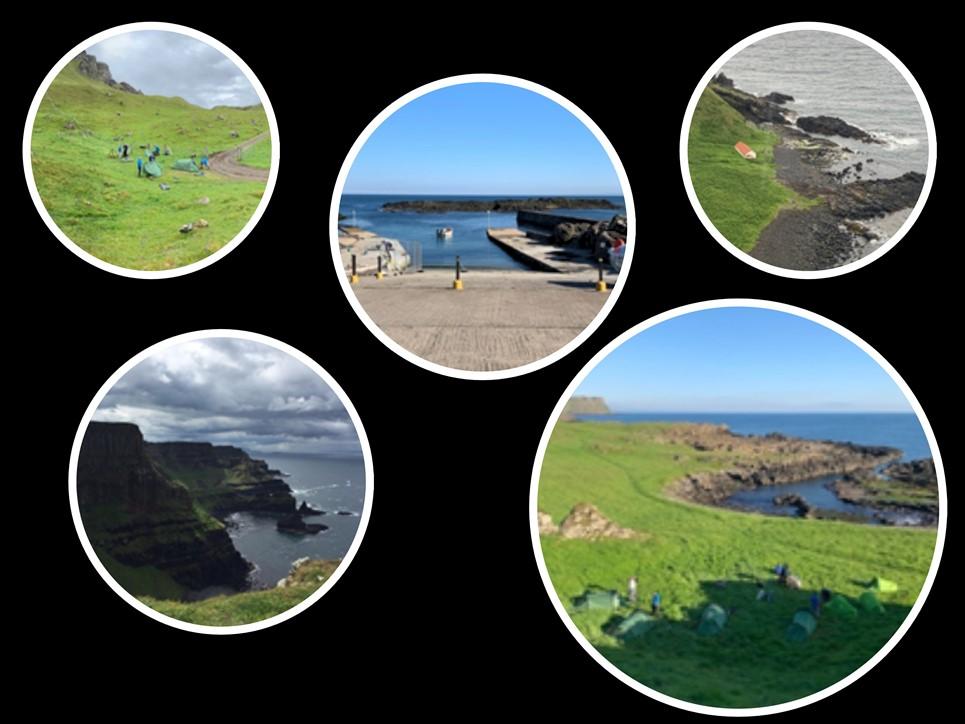
craft training was put into practice as the group set up tents for the evening ahead. Following a night under the stars the unpacking was reversed as the group set off on day two, passing through Ballintoy and onto the end point at Carrick-a-Rede. Around 25 kilometres were walked across two tiring days but blessed with fantastic weather the expedition was a fantastic experience for all involved.
Whilst PEI’s Andy Cochrane & Phil Price from the Gym Department took the lead in the delivery of training special thanks must be given to Mark Kernaghan and Kevin Williams who assisted with the expedition following their appointments as DofE co-ordinators in the OMU Department. Appreciation must also be given to the Senior Management Team in Magilligan who ultimately give their approval for such programmes to take place. If you would like to take part in the award please speak to your class officer on the landing or alternatively speak with any member of staff in the Gym. >>A
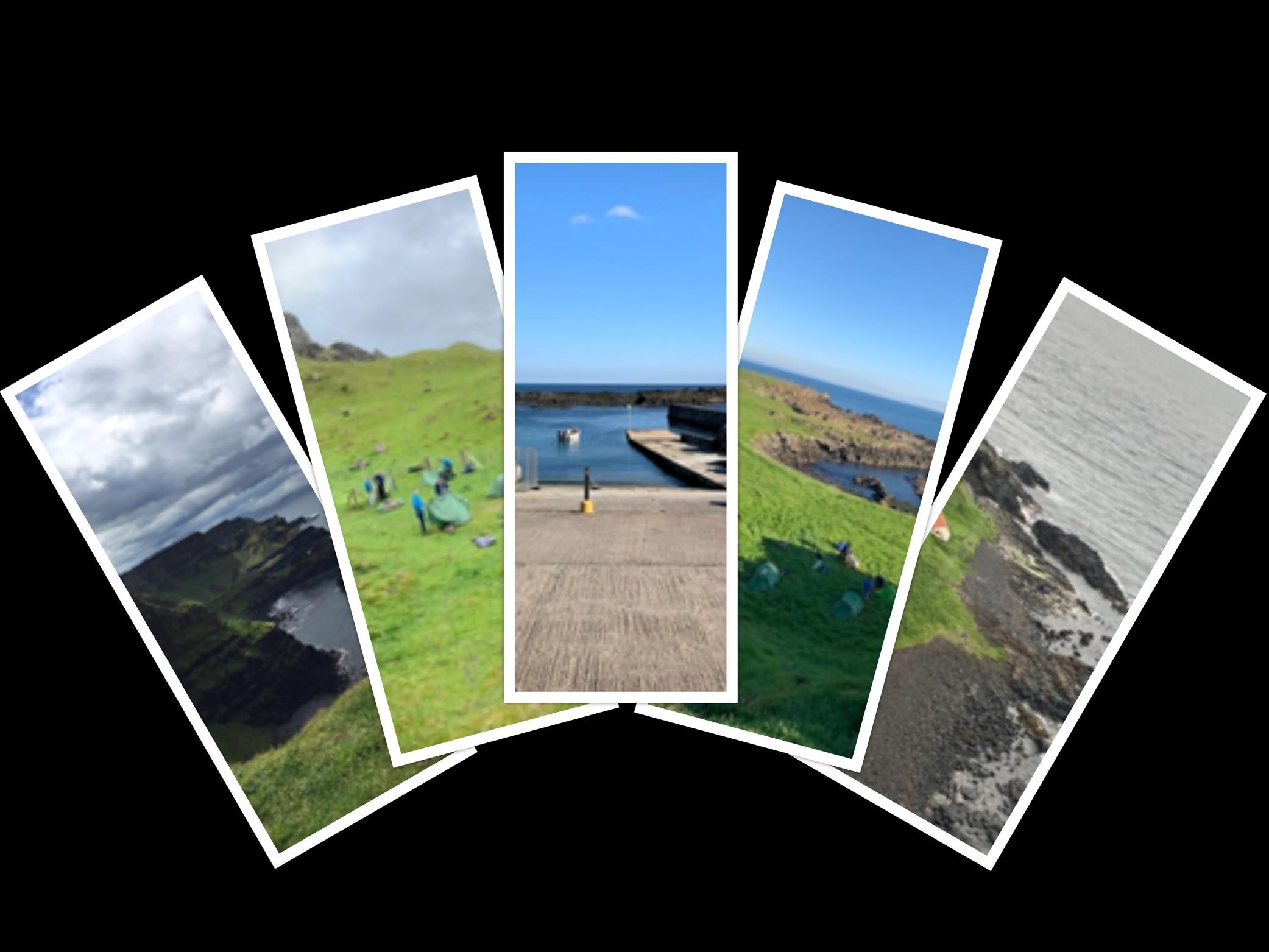








Surrealism: a movement in art and literature in which unrelated images are combined in a strange or irrational way.
Surreal times indeed we are living in, who would have thought that a virus would come and wreak the havoc that it has and continues to do? So on that note, I thought this was the time to write about the surrealist movement because it mirrors the times in my eyes perfectly. Surrealism was started in the 1920s and grew from the earlier Dada movement and was a means for reuniting conscious and unconscious realms of experience into reality or a ‘surreality’.
I will concentrate on art here although it was a variety of media, and the artists included works by Salvador Dali, Yves Tanguy and Rene Magritte to name a few and the paintings were painted in a very realistic style with the illusion of 3-D and emphasised a dream like quality. The most famous of the images that come to mind are Dali’s melting clocks and Magritte’s bowler hatted men; have you seen any of them? Well, I think that this type of art corresponds with these strange times, I mean people have been saying to me about the vivid dreams they have been having during lockdown (on the outside). I have watched this through the lens of prison and thought to myself about the surreal qualities of the whole situation and it has inspired me to be creative through art and it seems now everything I do paint has an element of the surreal about it!
Anti –authoritarianism too is a part of surrealism and that applies to me as well as I’m sure it will to most of you reading this! Surrealism was meant to baffle and disturb the viewer, (as I think most art should either disturb or soothe you) it was always bizarre can you see the connections to our present times? Another surrealist technique was to produce photographs that were uncanny and sat out of place or to defamiliarise them from their normal surroundings. Another was ‘automatic writing’ and I urge you to give it a go! Get a piece of paper and a pen or pencil, then without thinking of anything (clear your mind) just let the pen or pencil move around the page try not to think of anything especially where the pen is going and let it move for as long as you think an image should be drawn. Look at what you have done, rotate it if need be and try to make out an image of what you have, it fascinates me every time I do it and what I would usually do is then elaborate on what’s there and make a complete new image! Amazing or what!
Anyway, I’ll finish up for now and hope the comparisons I’ve made to surreal art can be seen by you the reader and only hope that we find some way to overcome this pandemic (as I’m sure you all do), until next time my friends be safe and keep the head strong and be creative where possible! >>R

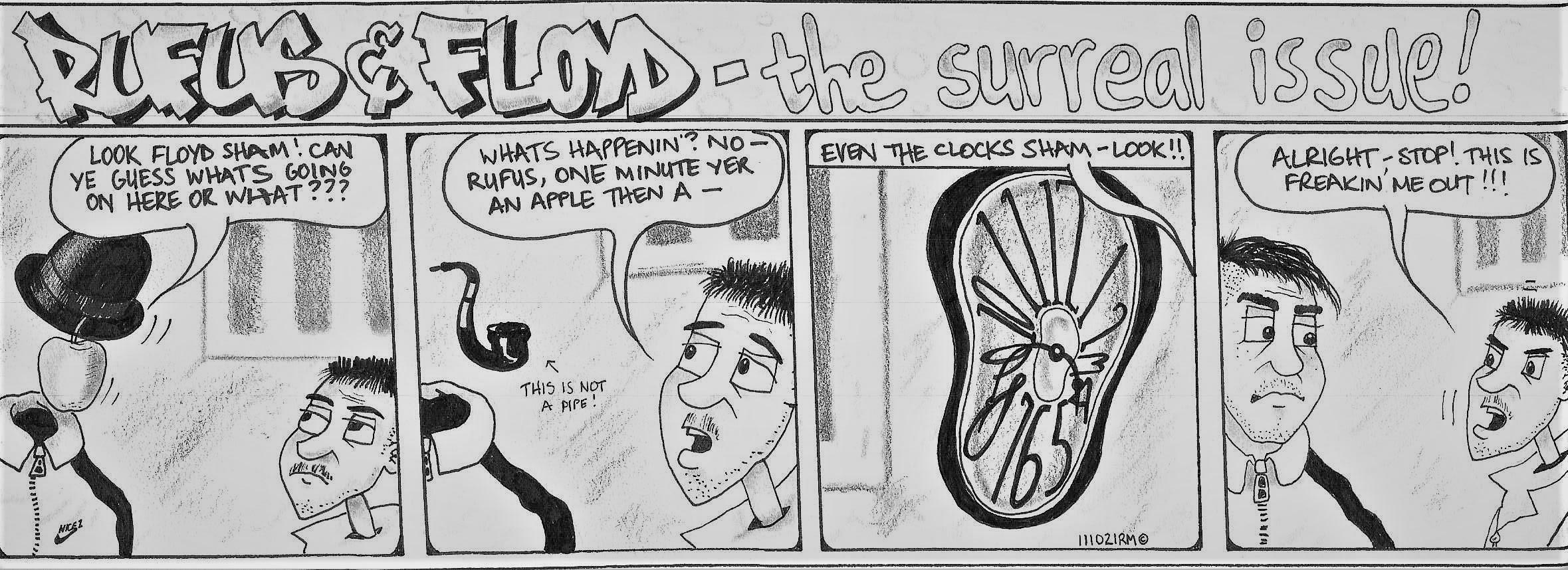
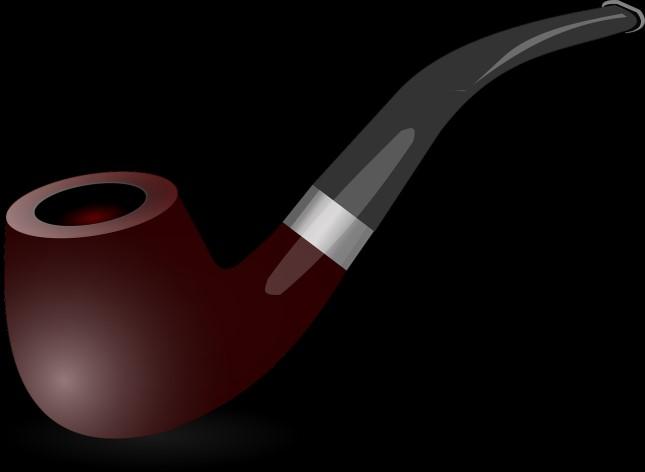

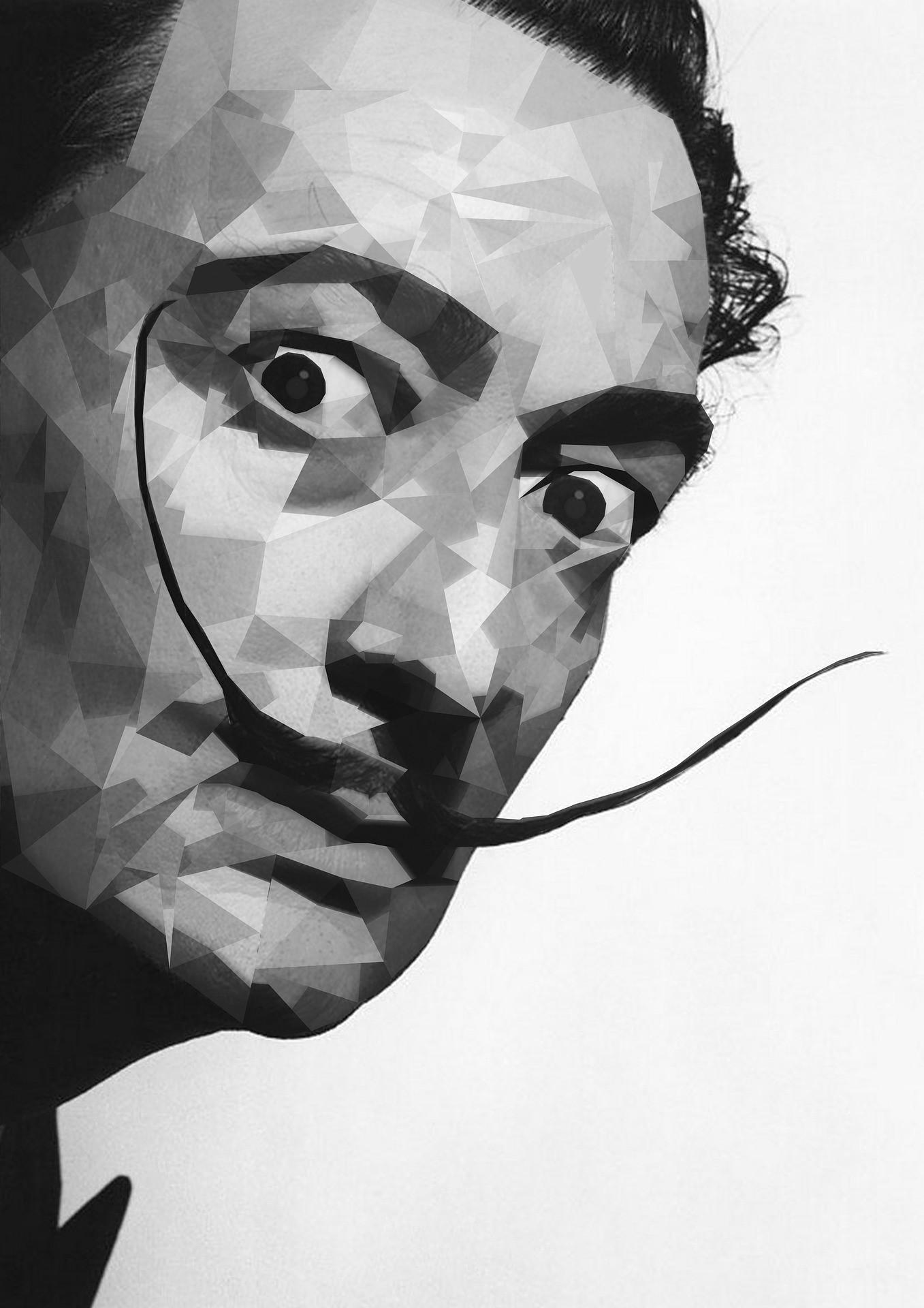
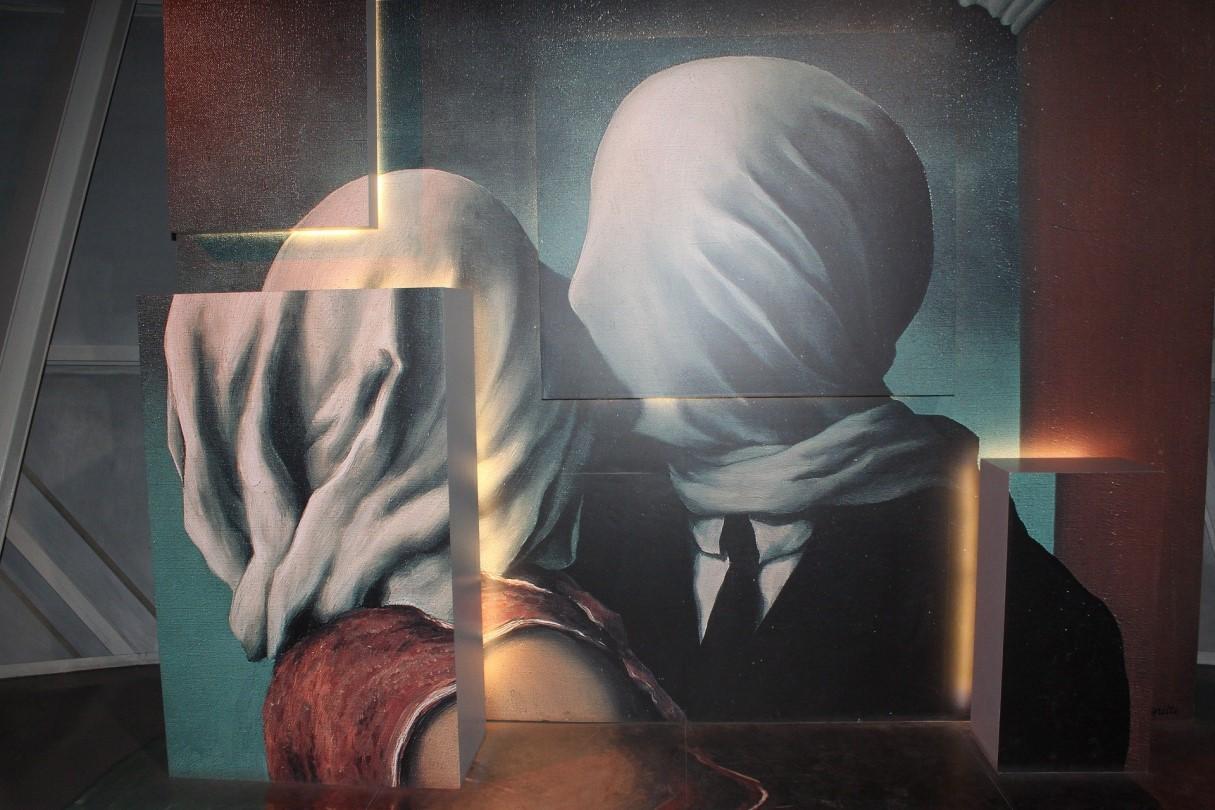


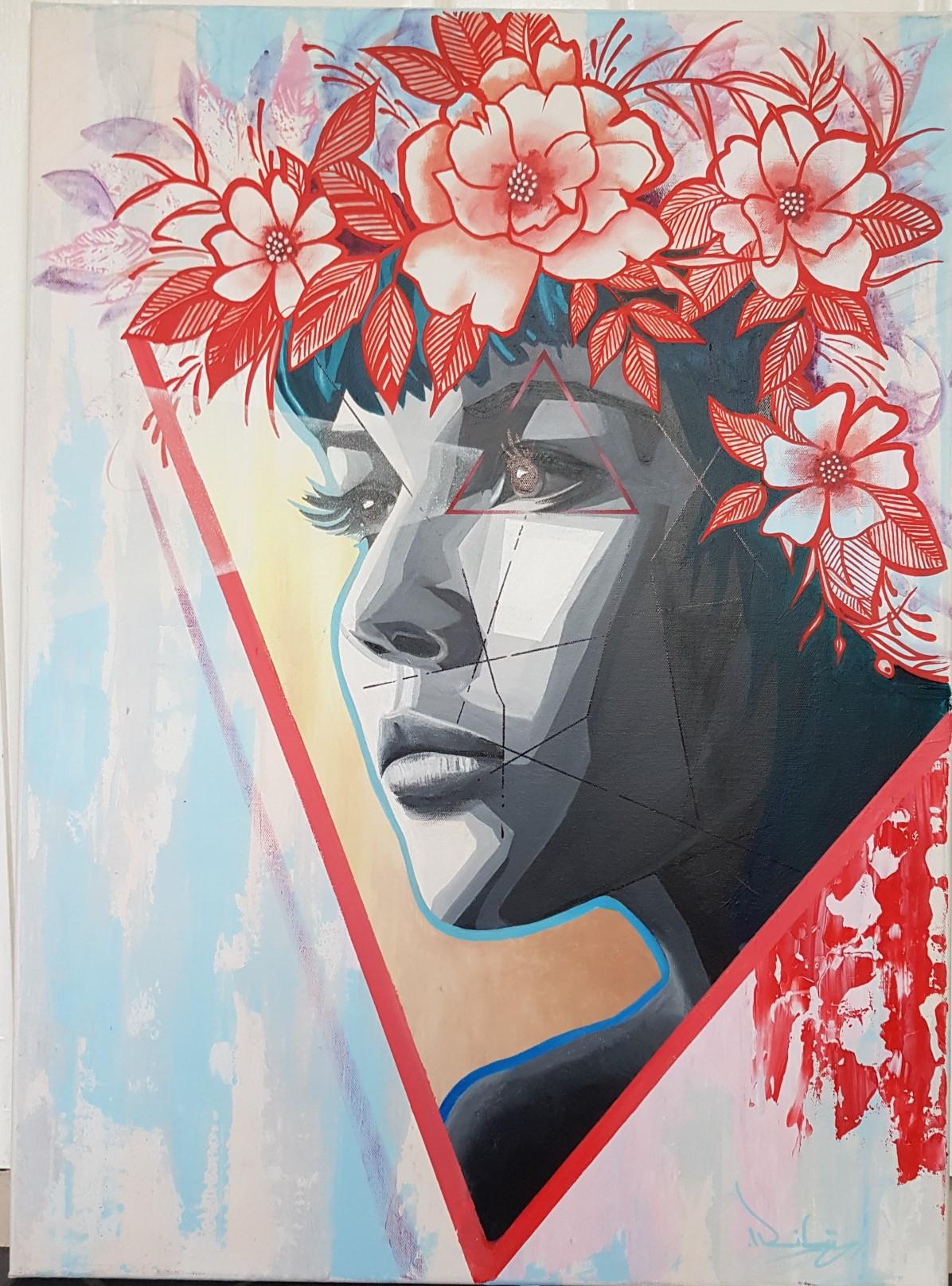


I want to be heard and to be understood because sometimes when I talk my words don’t come out as they should
I want to have a better life not to be in the place I am I don’t want to be angry I want to be calm
I want to be sober to see myself as strong to turn over a new leaf say hello to a new dawn
I want the world… to be a better place to have dreams and hopes and to feel safe
I want to live forever and stay twenty-two I want to have a peaceful mind that would be something new
I want to be happy but most of all I want to be secure >>KM
Cold raw steel thoughts radiate and eradicate All that you can feel around you
Craving the heat of love
From your home that once was Now no longer available or indeed possible
You gotta keep walking on and on
Crossing many glades; numerous ways
Till you find at least somewhere; even in your mind
Some small oasis where you can step off the path
And sit sedately with a serene sense of a shade. >>PM
Justice equal to the seasons of day and night
Are yes and no two complete opposites?
Dropping the penny: you become aware
You are the pink slip owner of a broken heart
Lying in the darkness through the long hours
You have now become attached to the daisy chain
A chain of broken hearts; given and received Your situation; static, stumped, and pain without light
You never know why a broken heart is what it is
Be mindful, pain is the currency we spend
Always apparent on the bottom line, on your bill of life. >>PM
The passion from his heart blew out the candle in his brain
He thought he was being a soldier
But he brought a lot of pain
Not only to himself but to his family’s name
Don’t let yourself be used in this rich man’s game
To them you’re just a pawn, a number not a name
Think before you act and save yourself that shame
Thank God this generation’s different They will be the time 4 change. >>JE

Some fragments of my soul sadden
Reality and mind merely together by thread
Disheartened like a dying flower coming into winter
Petal by petal falling apart as the coldness sets in
Negative thoughts going round and round
An endless spin
The fire that once was nearly gone
Constantly wondering where I went wrong. >>JE
The soul: with a body in pain
The dream: to awaken again
The drive: going down the drain
Hear these words before I go insane! >>JE
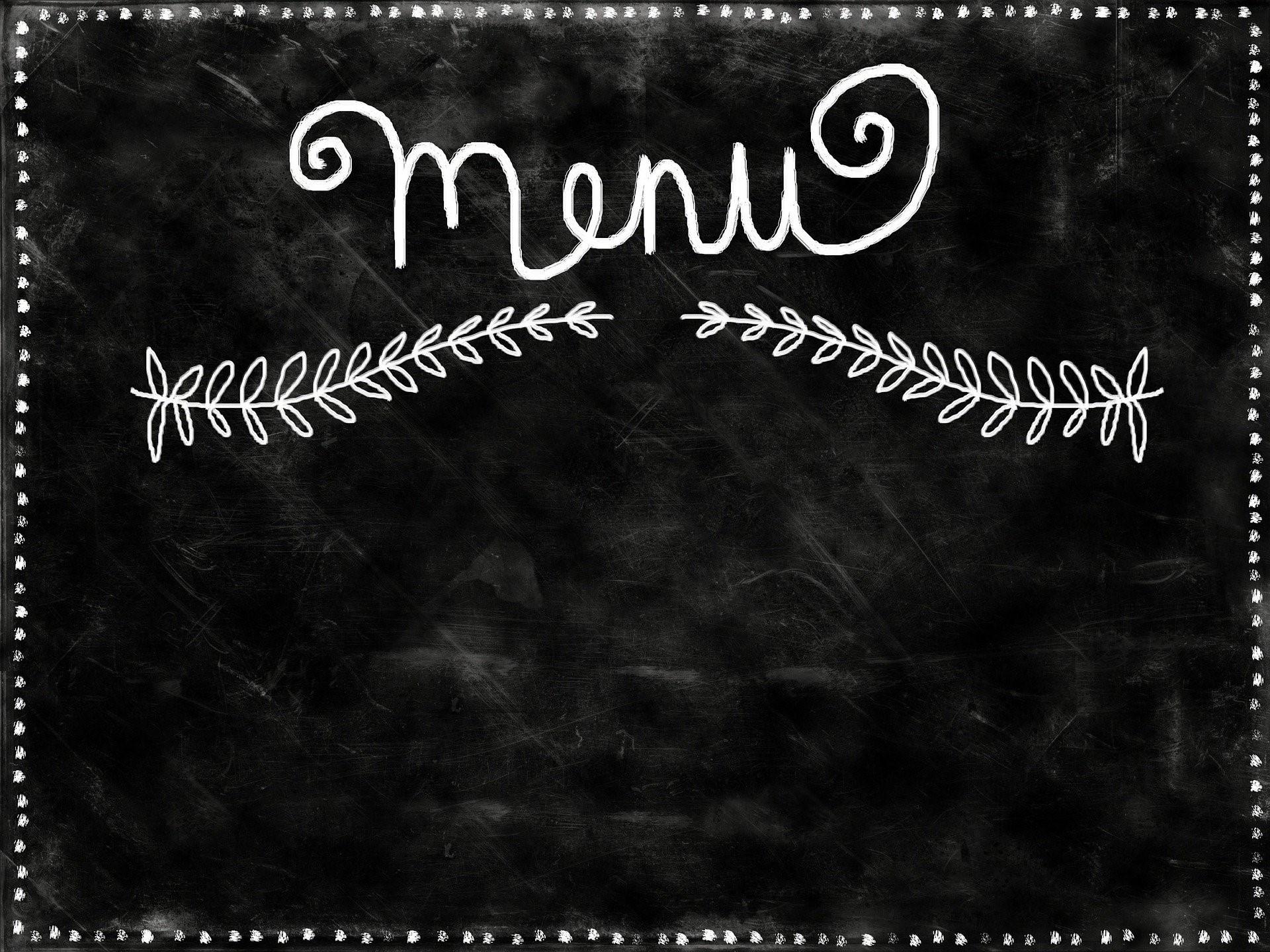
Commended Award Koestler Arts 2021
Forty-three years on the planet, with not a lot to show, a cell door for company, still getting it wrong, life’s a sad song why me…
Reflection in the mirror, can’t be me, went by so fast, where’s the whipper snapper I used to see?
an old guy looks back from a cage unfree why me…
No sparkle in them eyes and PTSD, an illness you can’t see, hard times in front of me. Bad thoughts filling my brain, flashing through like a bullet train why me…
Pictures of my family scattered across the wall,
three kids now grown, big and tall, went by so fast from when they were small why me...
Mental health problems often hard to see. got to stand big and not crawl, even though I’ve nothing at all why me…
Got to get it together and do my time. Future’s coming, it’s down the line, although it came nineteen years too late why me…
Keys will turn, and locks will lock, got to tell myself, can’t stop the clock, time on the earth has a limit. ask my heart and my spirit why me...
There is that spark that I long to see. an old guy looks back at me.
Ssshhh for a second, I can hear the key positivity flooding into me. got to come out fighting, no more whining why me… >>MN

My best friend was alcohol enabling me to talk to say how I feel to leave the house and function
Then one day it turned into my enemy just a shell of a man left who lost everything everything that was dear to him
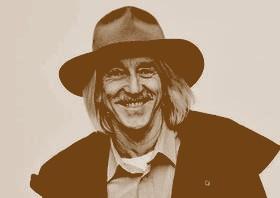
Education Centre
HMP Magilligan Point Road
Limavady BT49 0LR


Prison Arts Foundation
Unit 3, Clanmil Arts & Business Centre, Northern Whig Building, 2-10 Bridge Street, Belfast, BT1 1LU
Phone : 028 90247872

Email: info@prisonartsfoundation.com
his family, his friends, his home and almost lost his life
Alcohol was the GreatRemover and I wanted to die until I met a recovering alcoholic who listened and understood who asked me to an AA meeting
They welcomed me I kept going back they helped me gain everything back now twenty-six years later the beautiful thing is I can help others
And the GreatRemover by giving it away freely I keep my life. >>DS

Phone: 028 777 20 598 Magazine

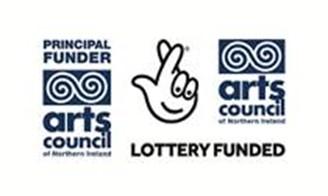


All contributions welcome. While reasonable care has been taken in the preparation of material in the magazine, TIME IN accepts no responsibility in law for accuracy or contents of each issue. No item may be reproduced without the written permission of PAF.